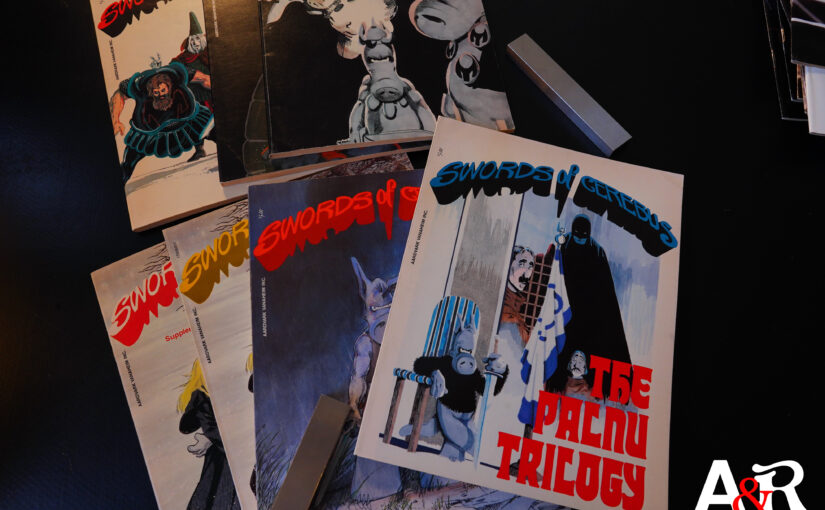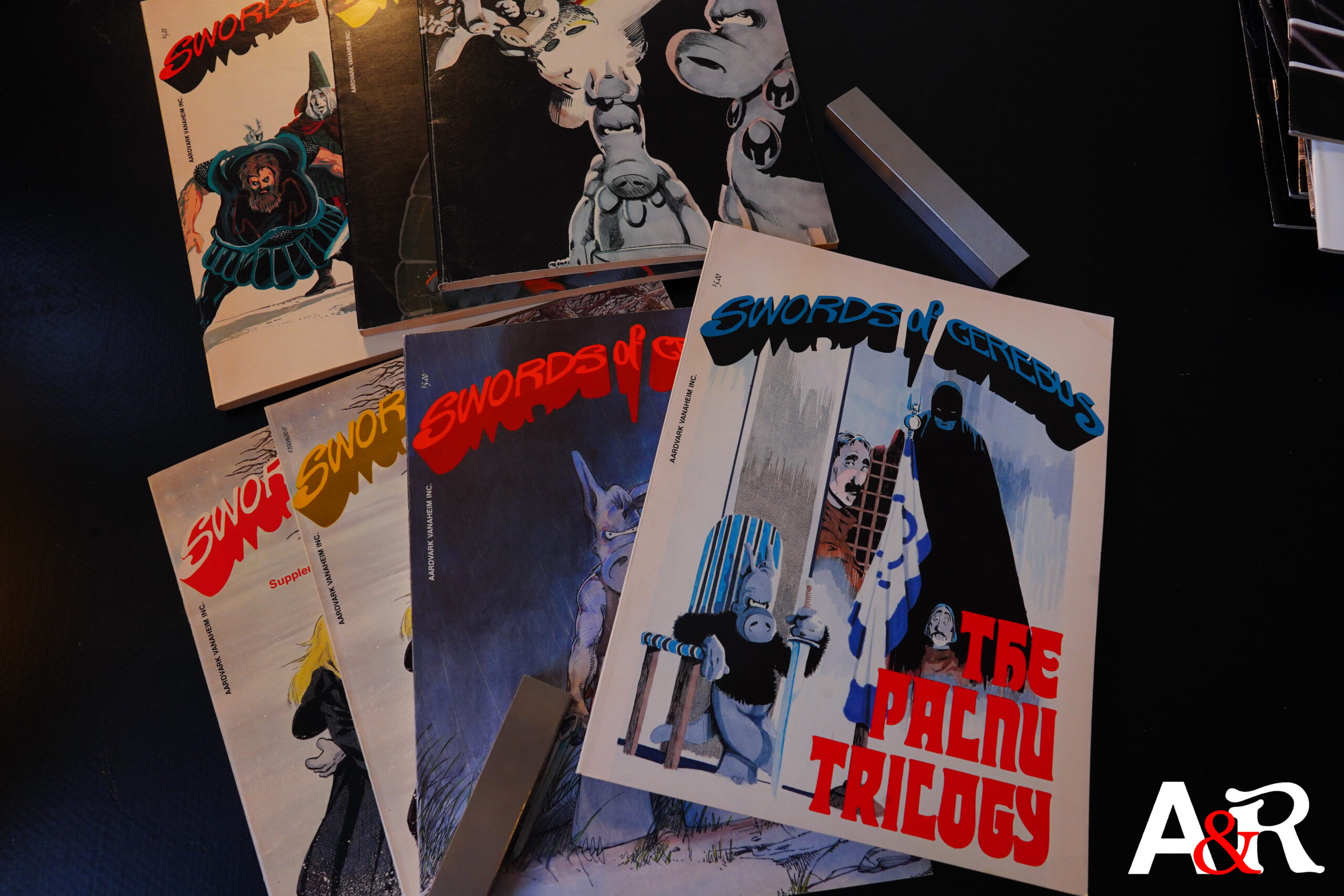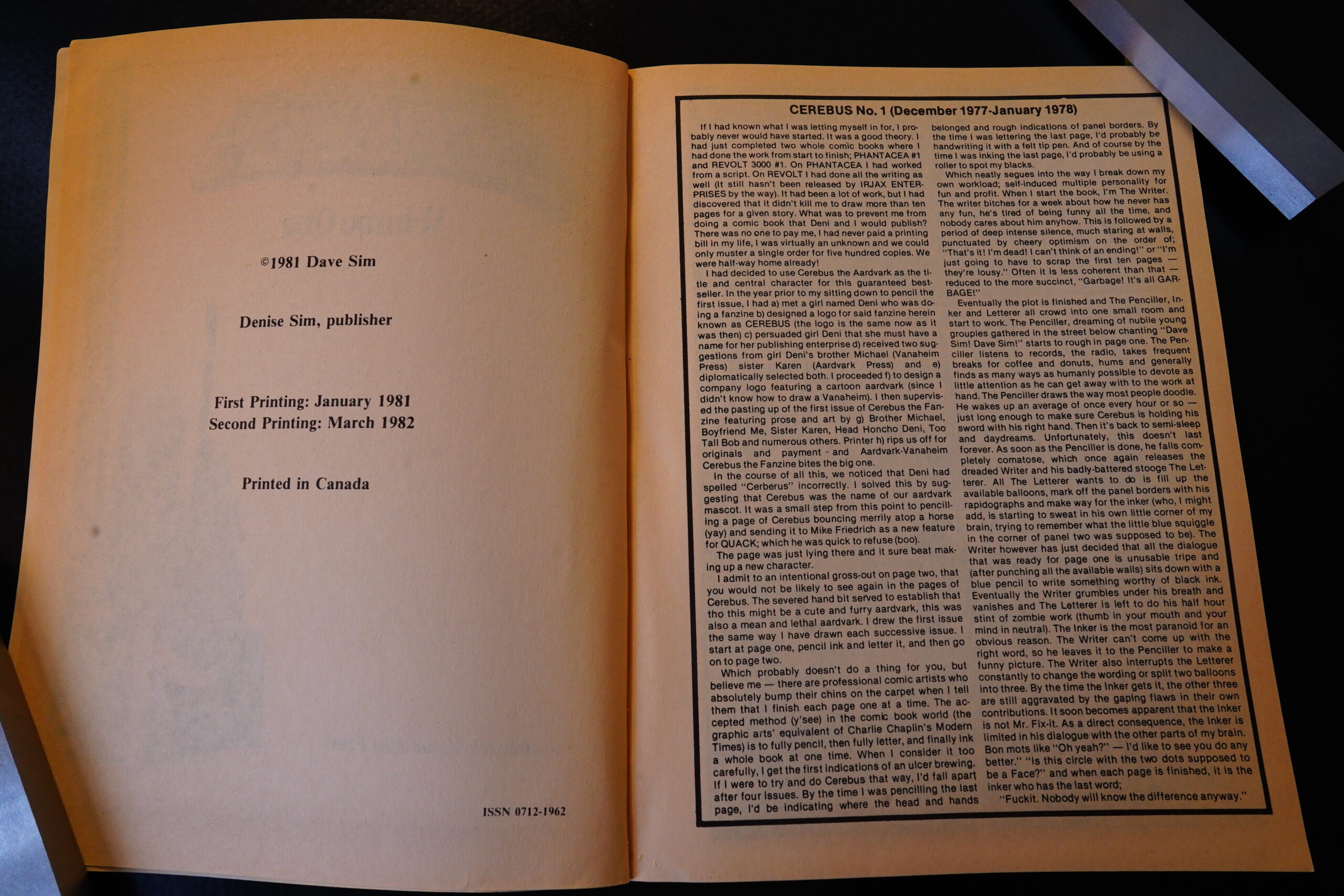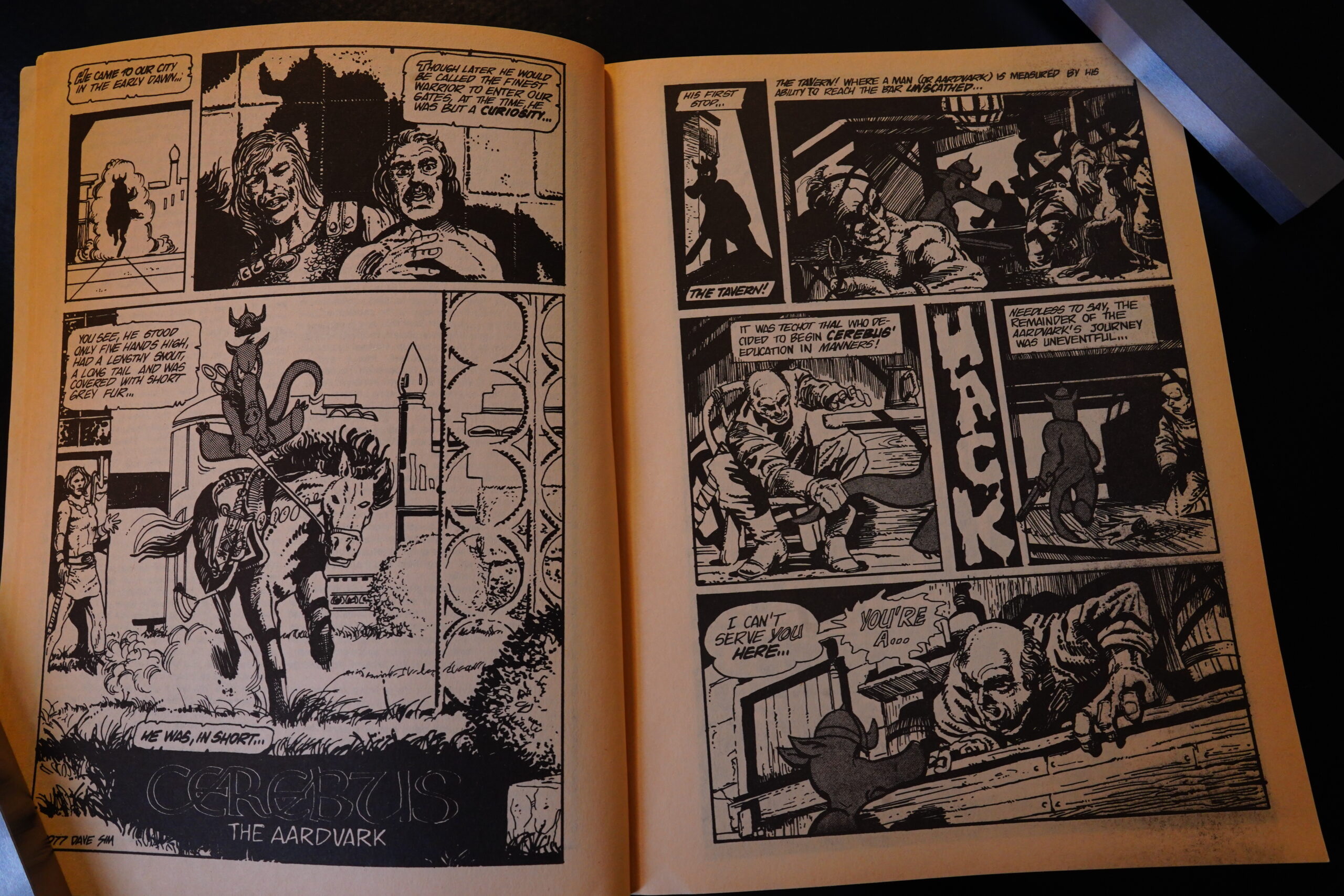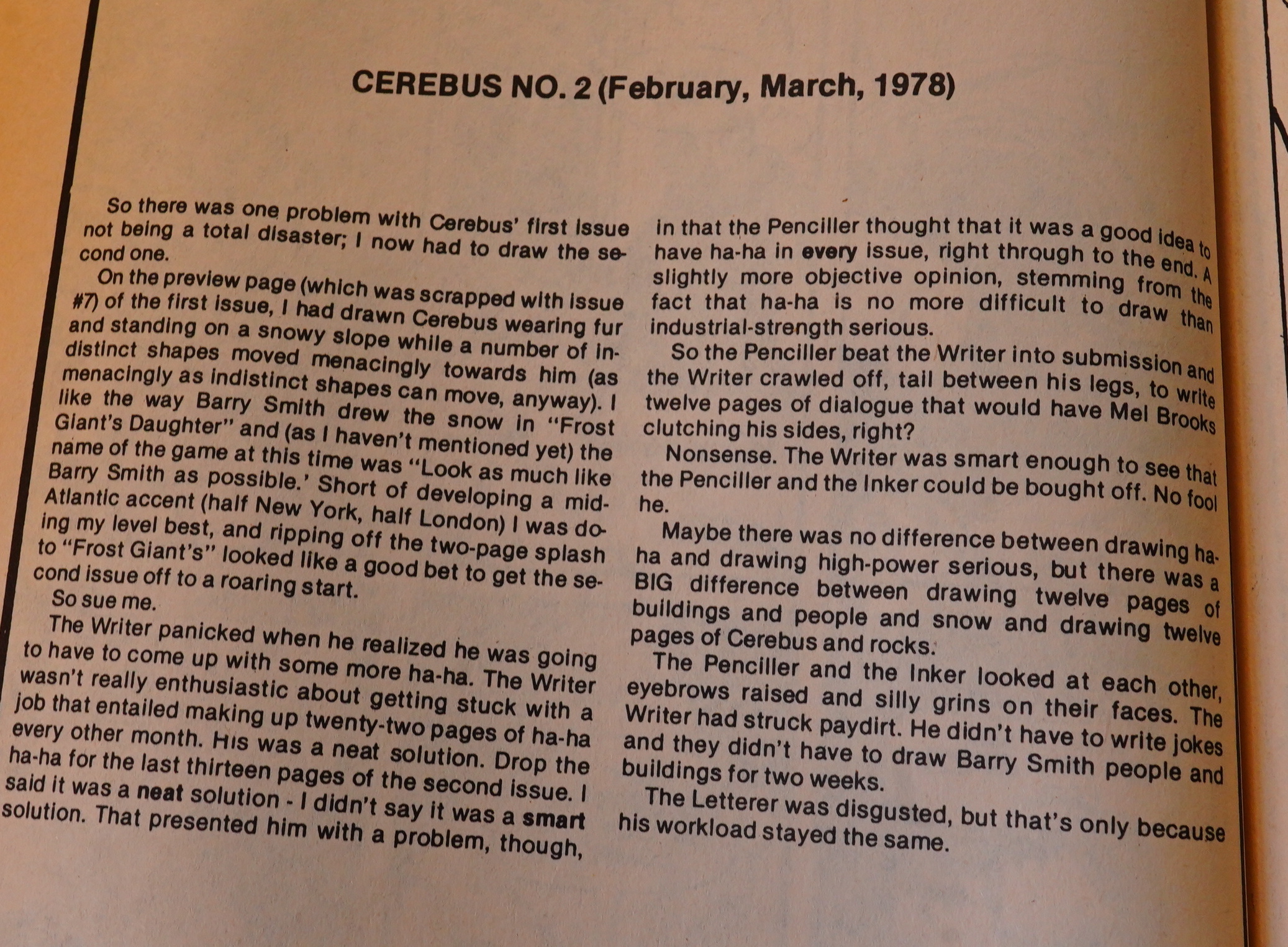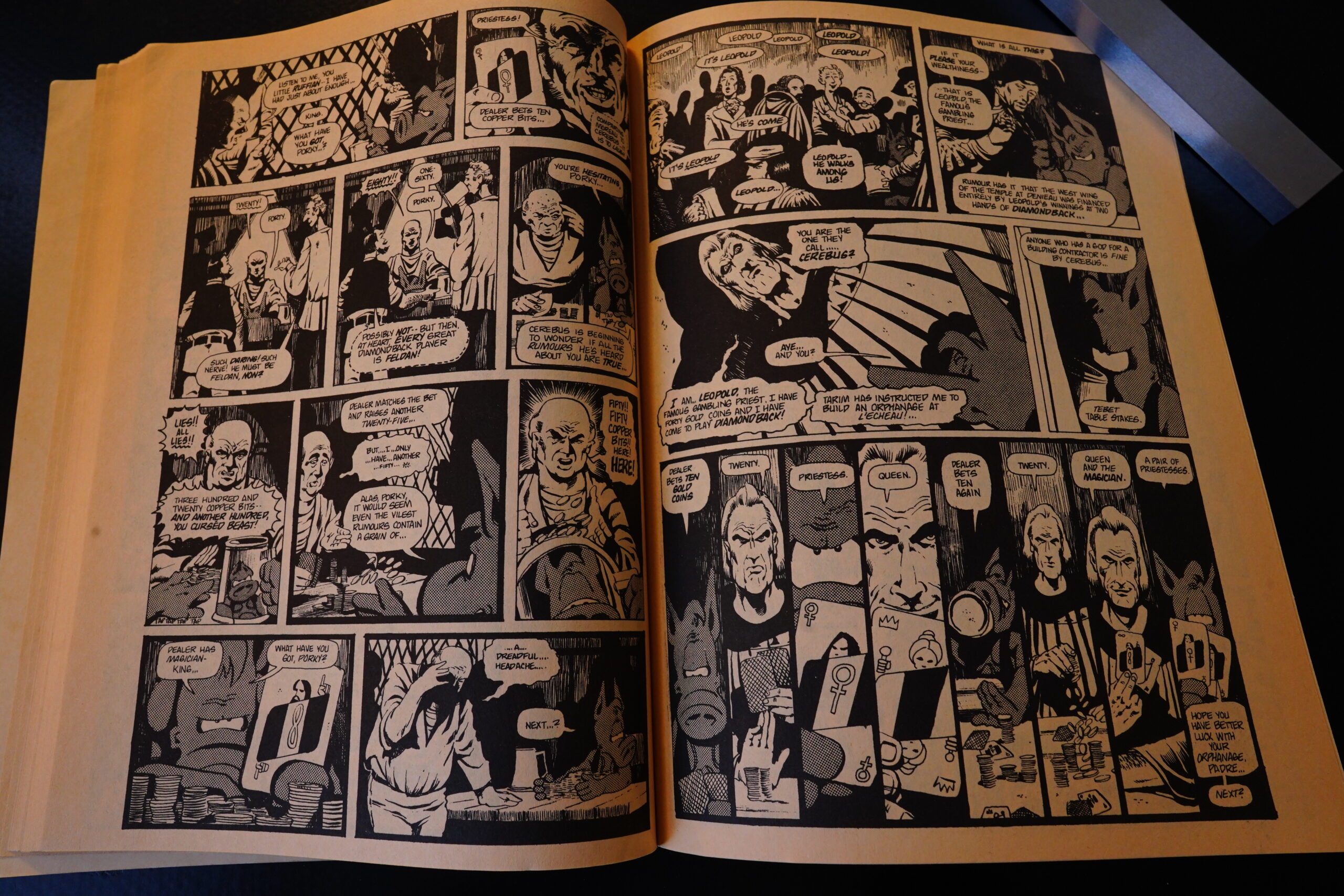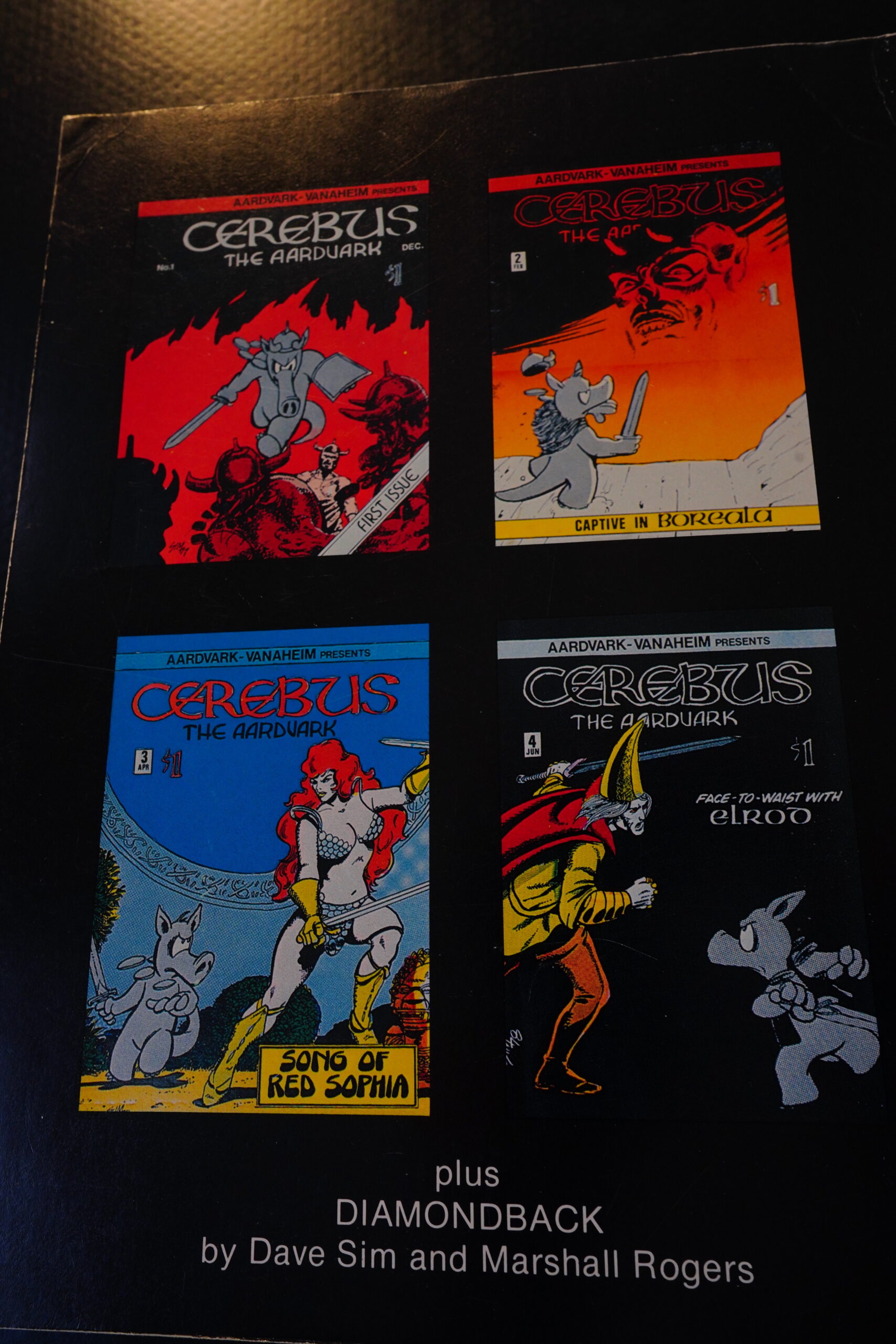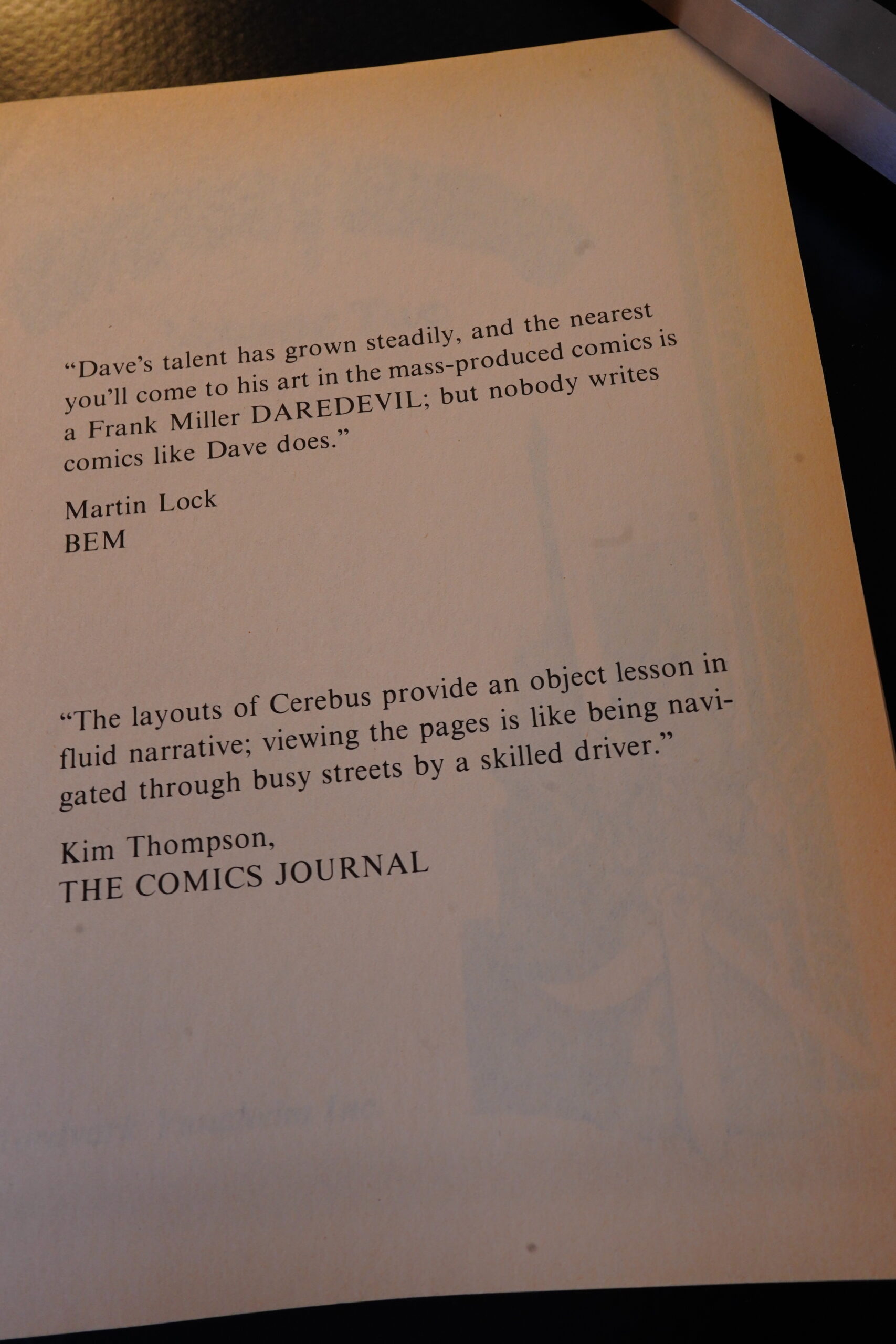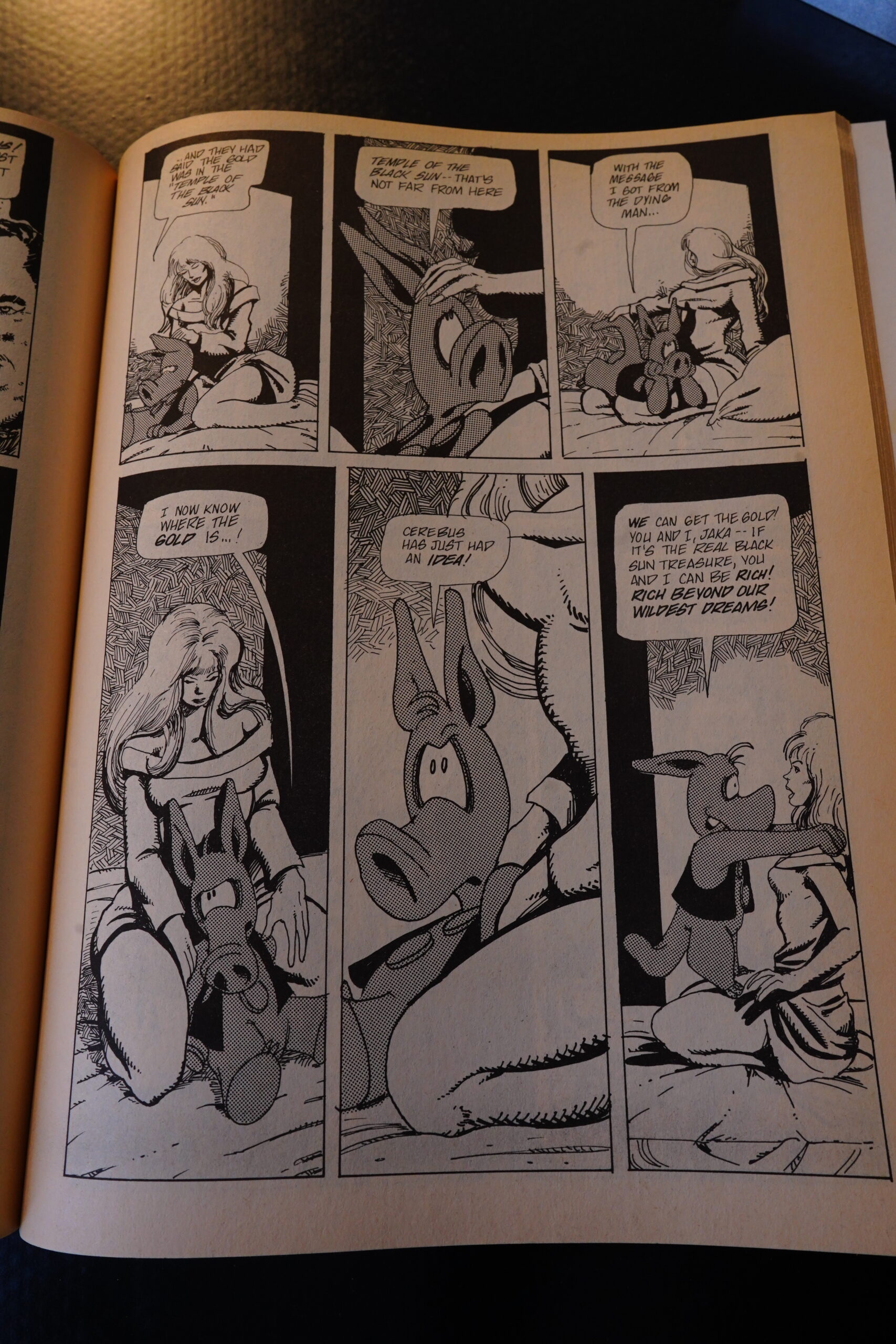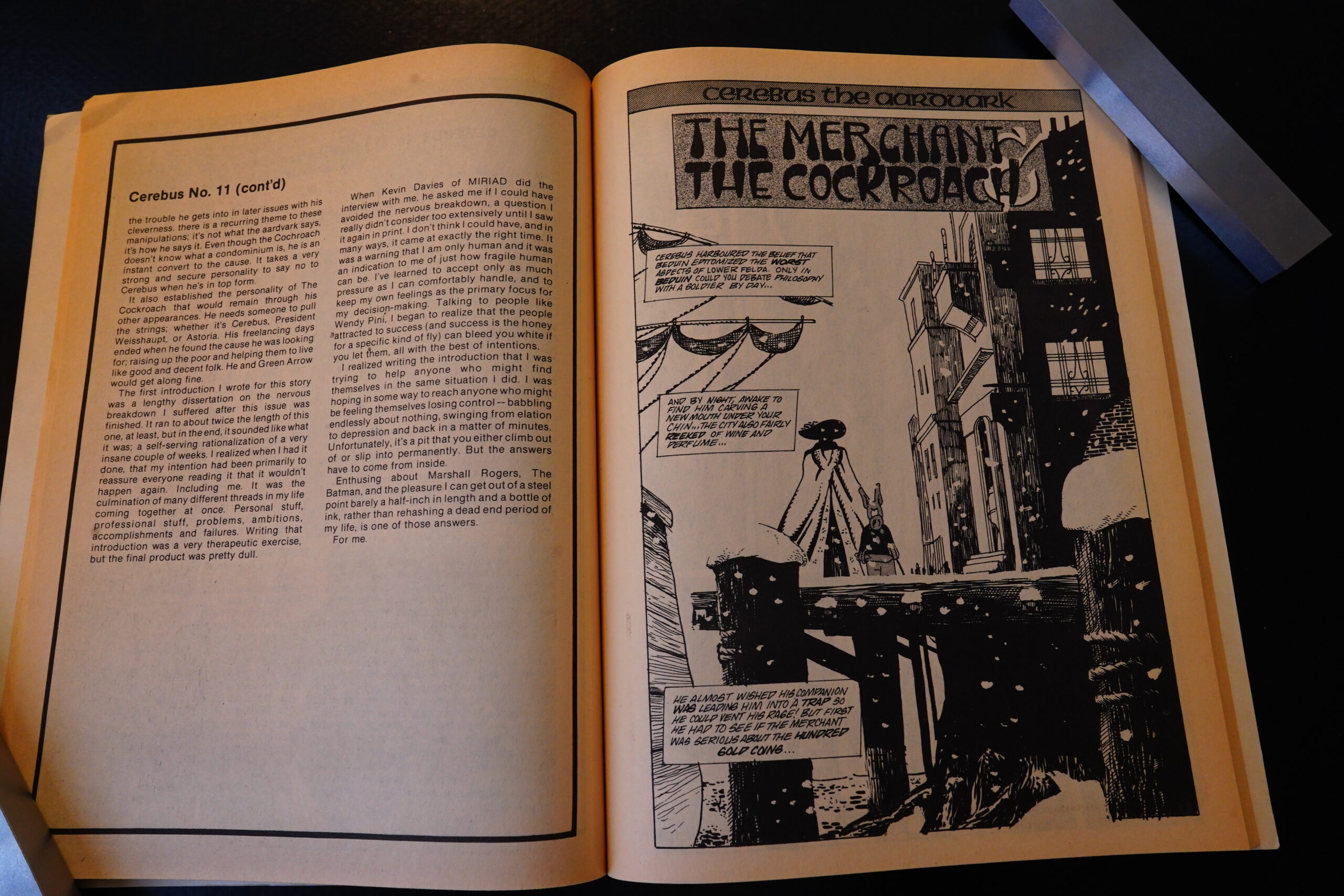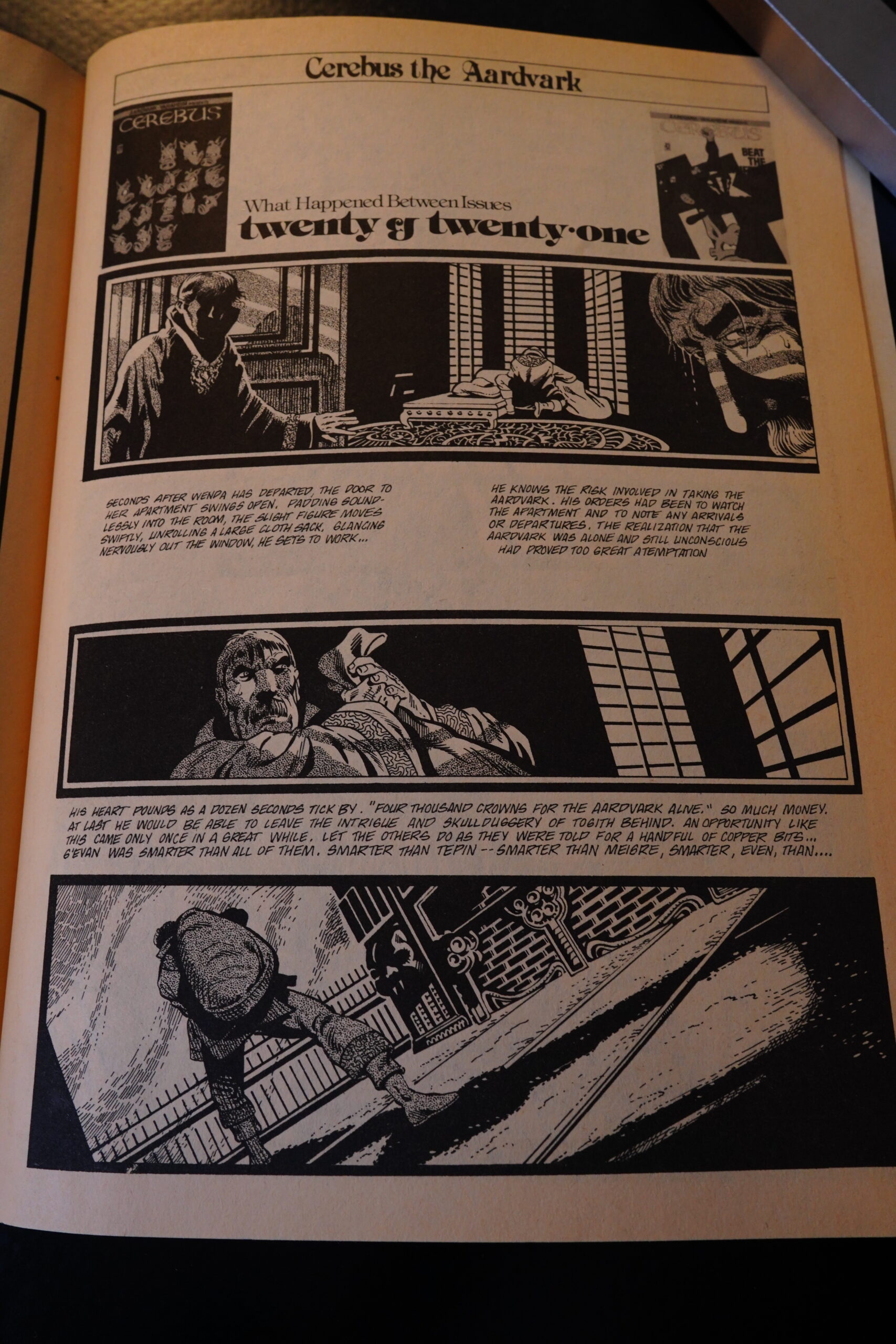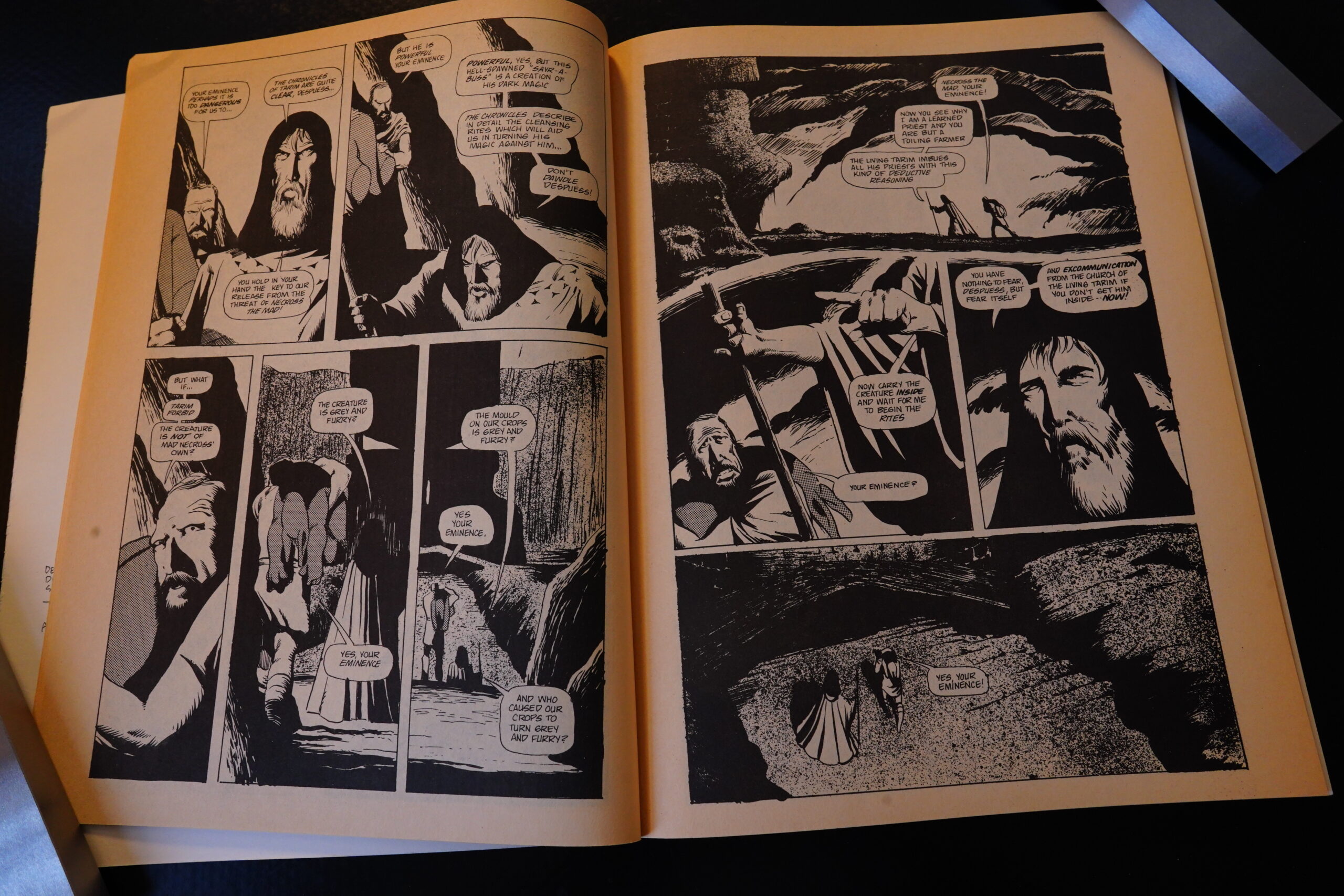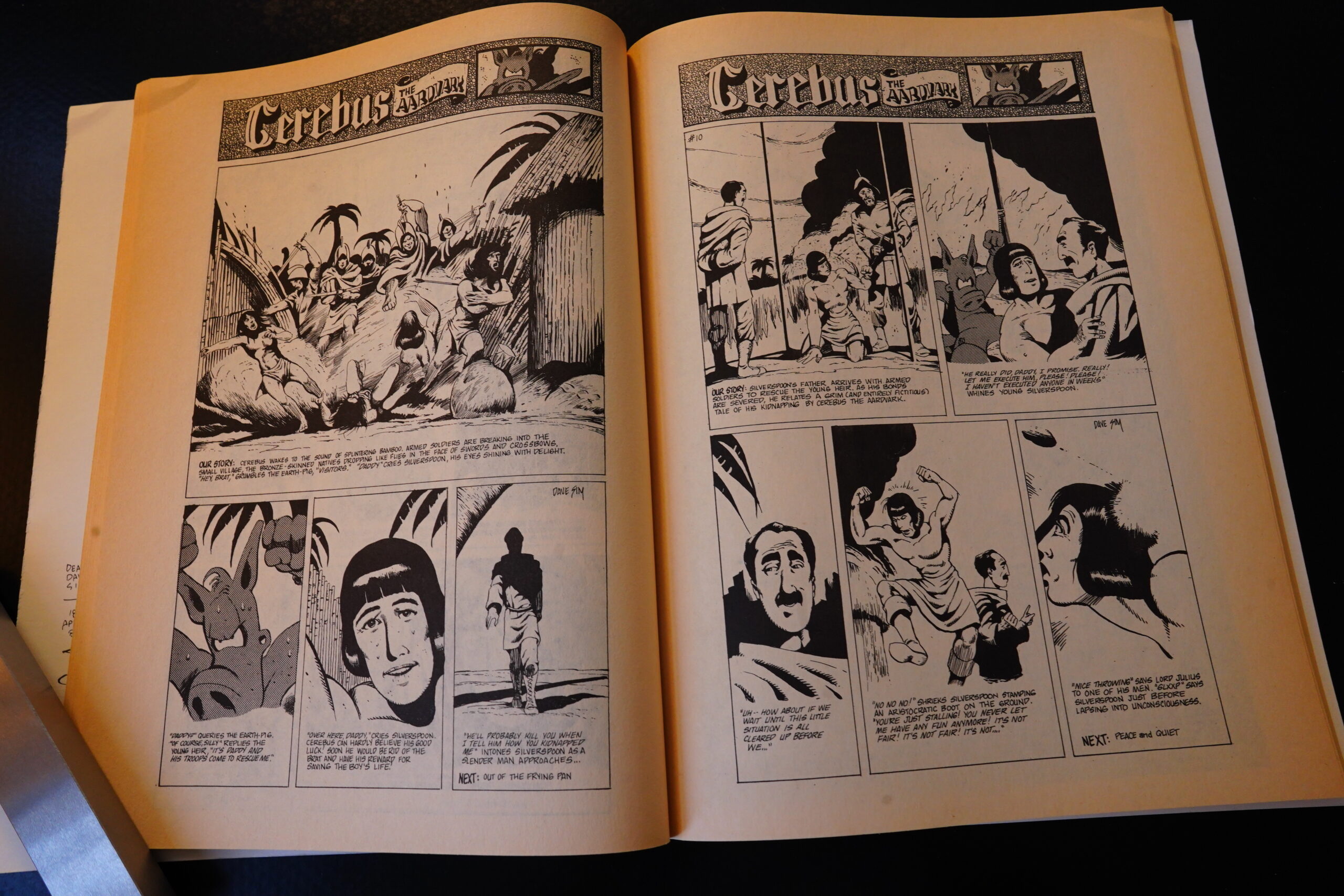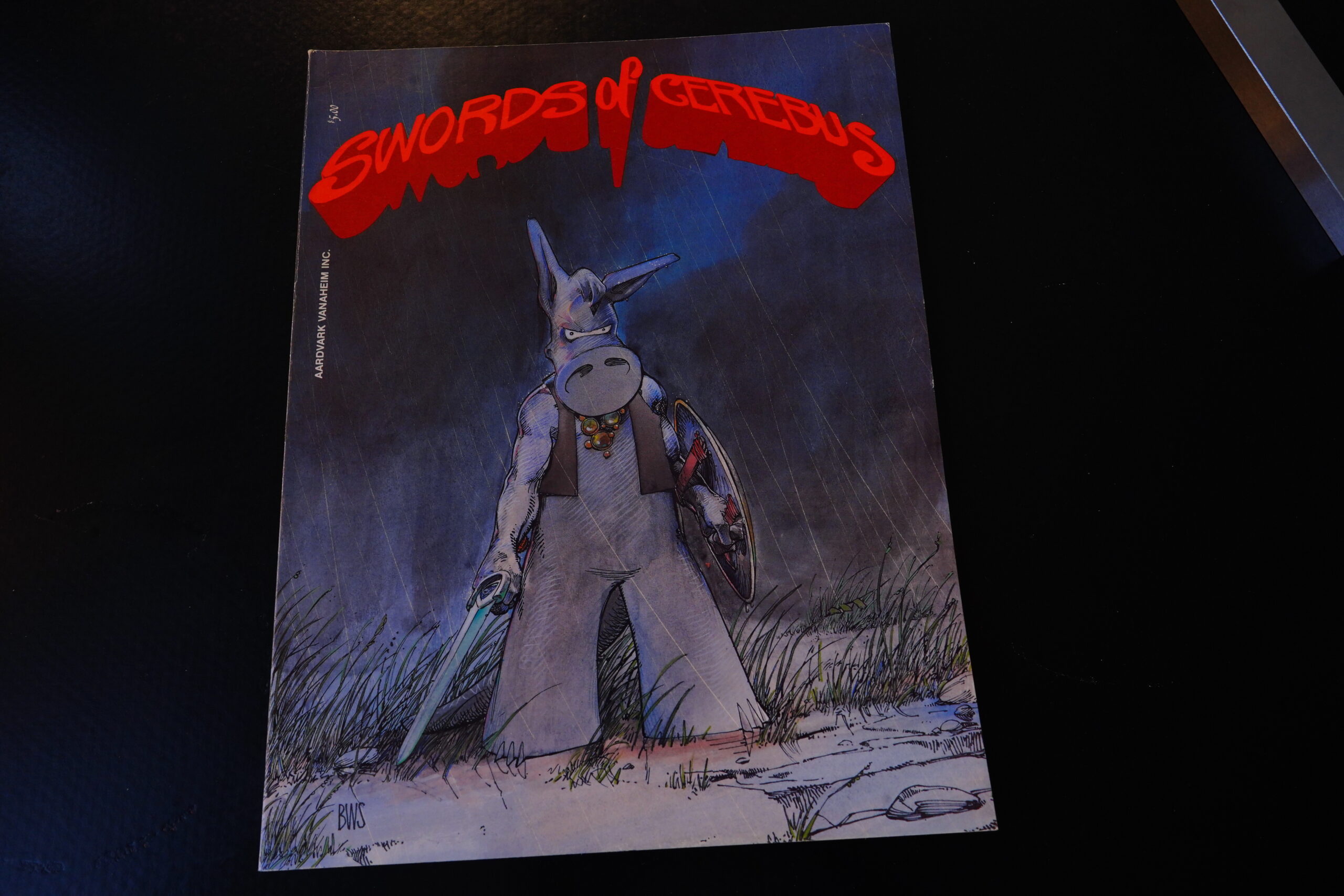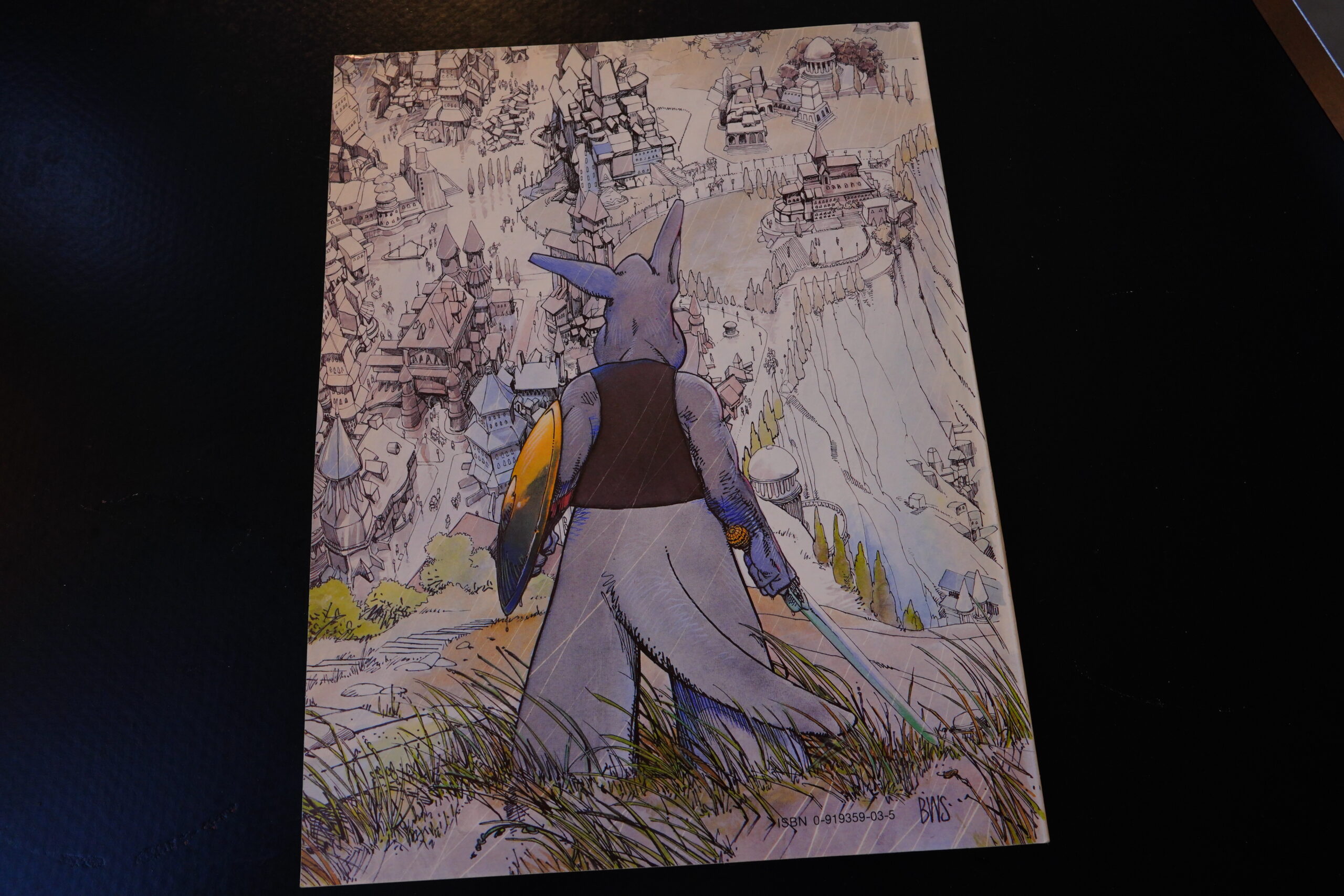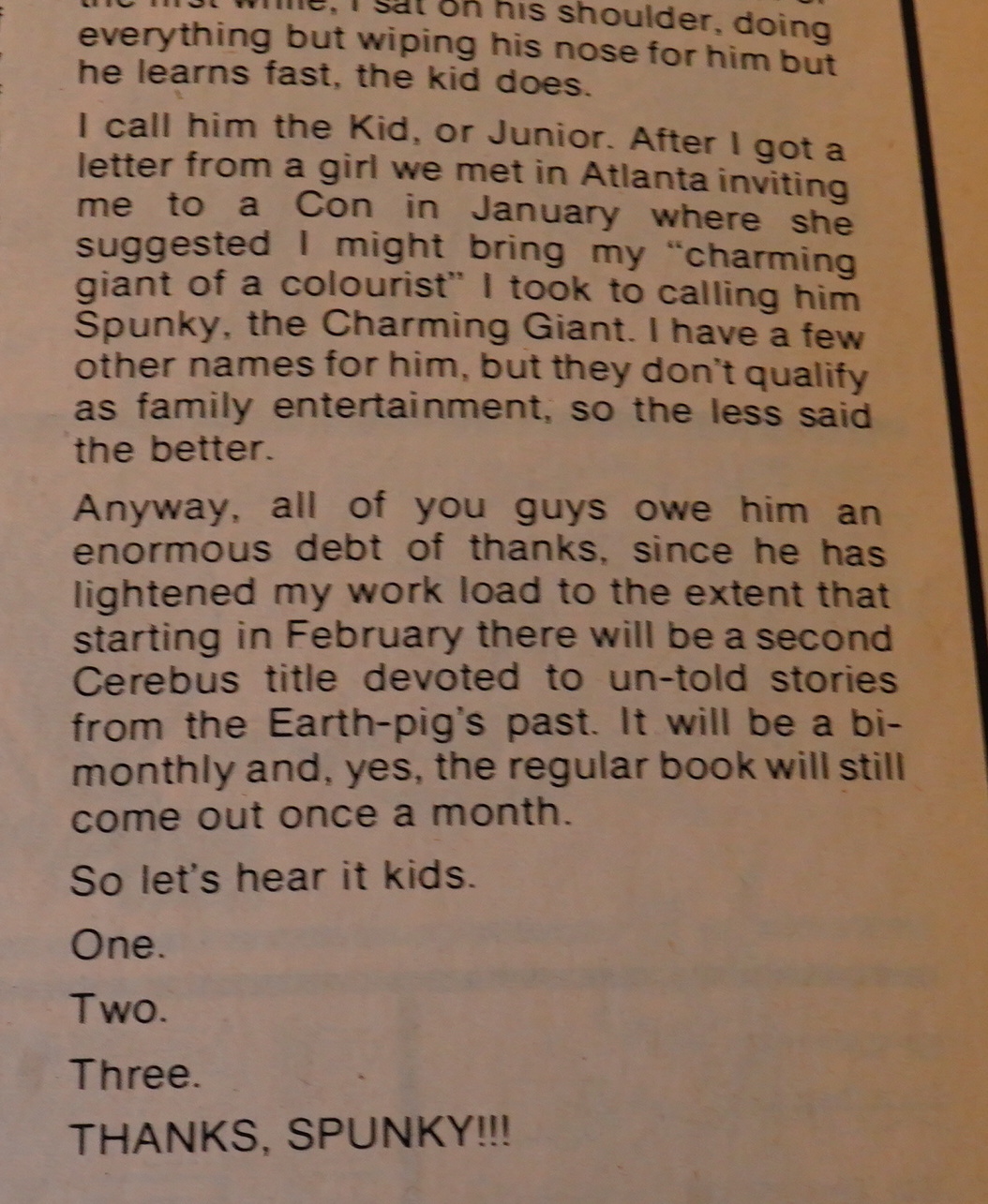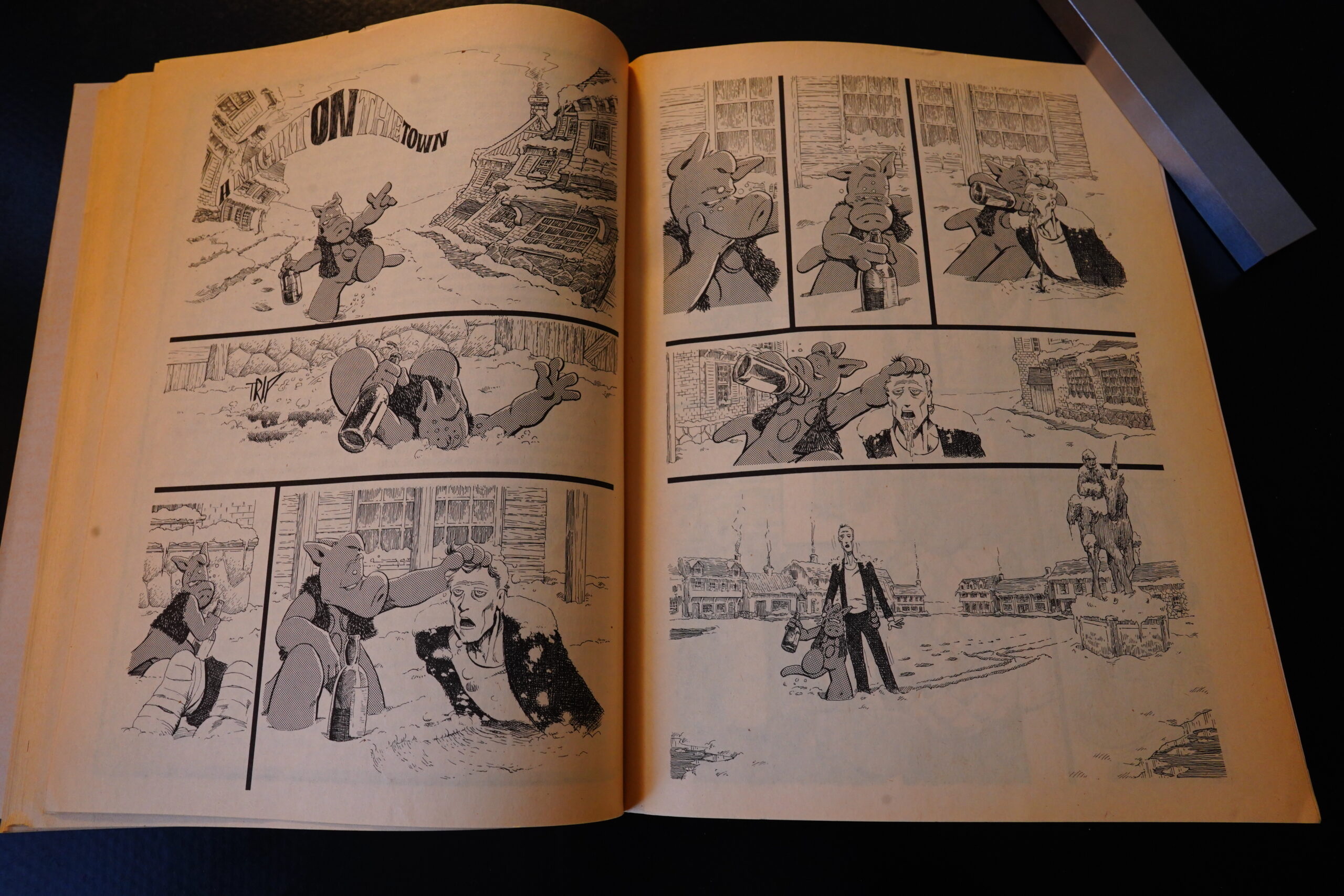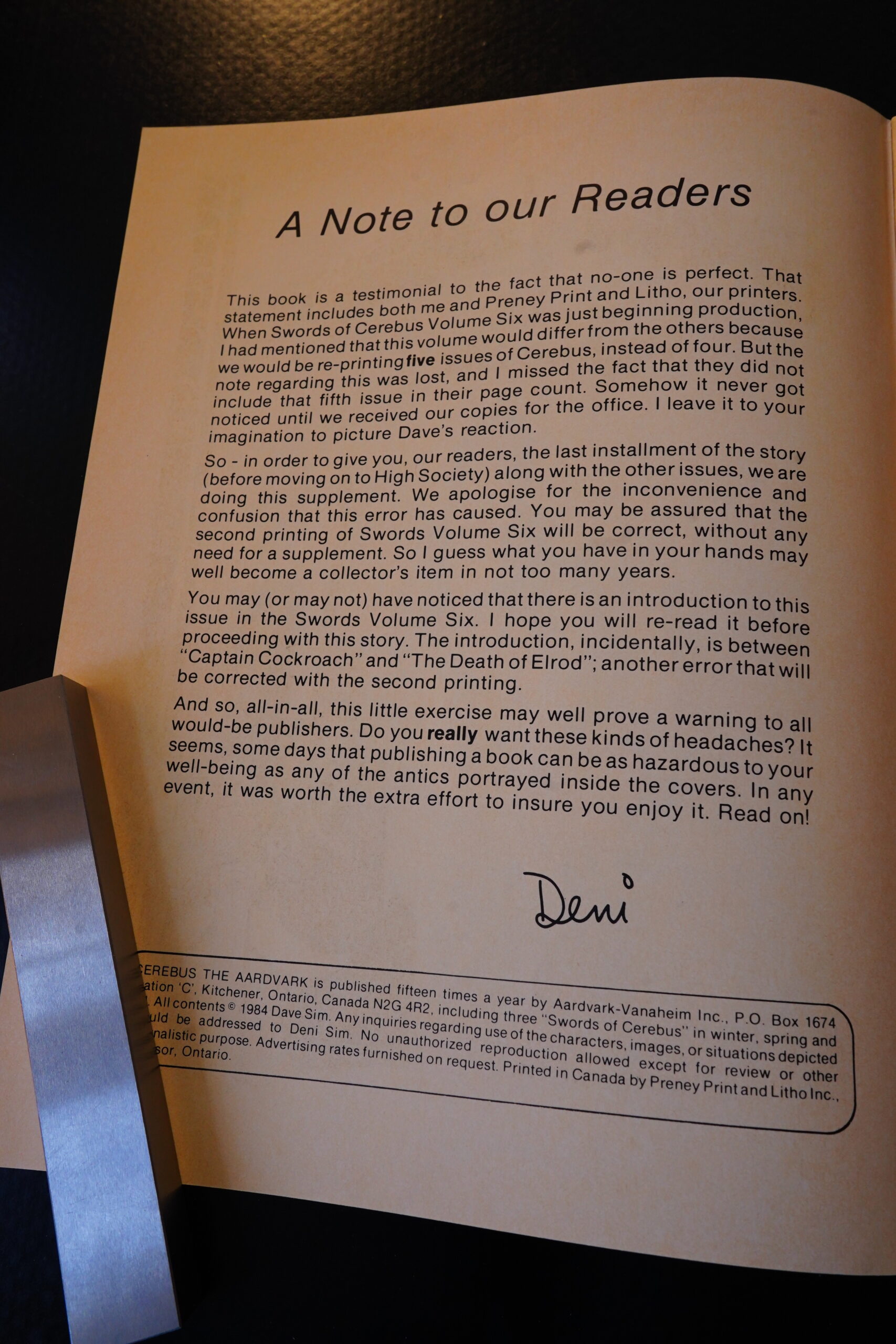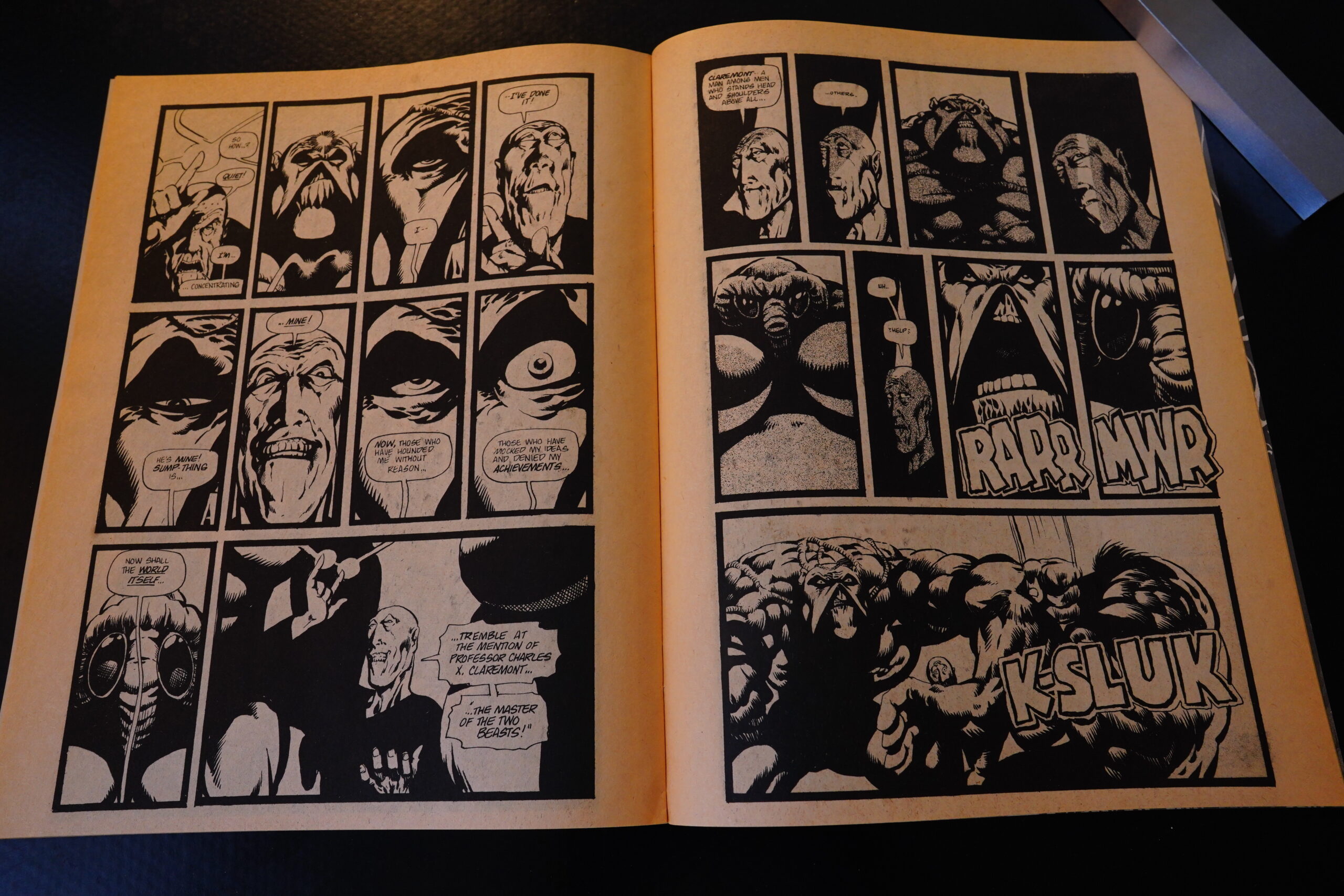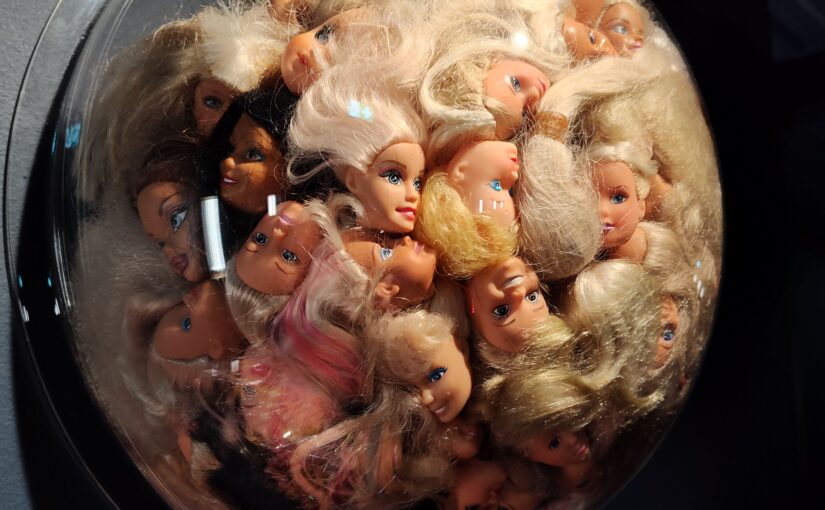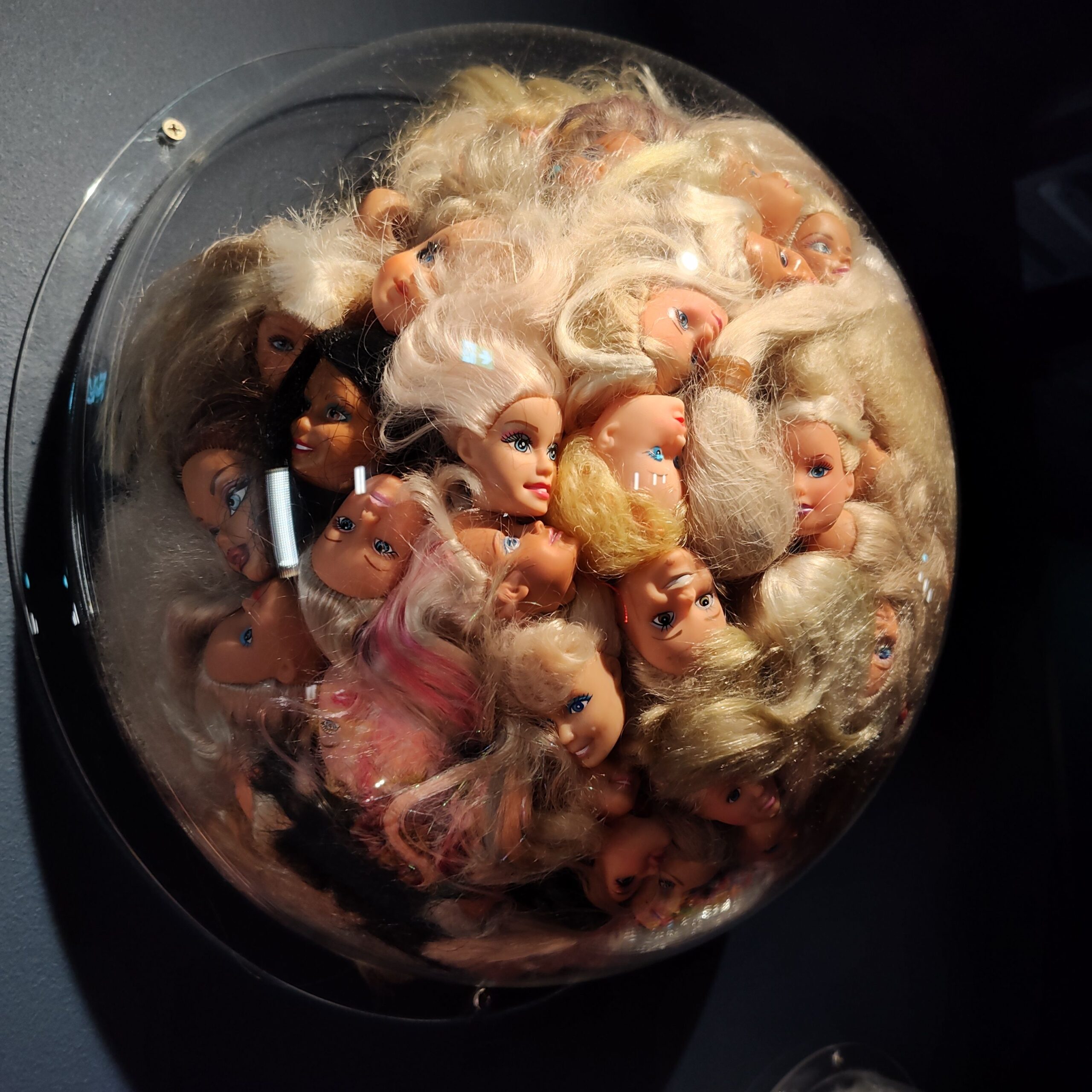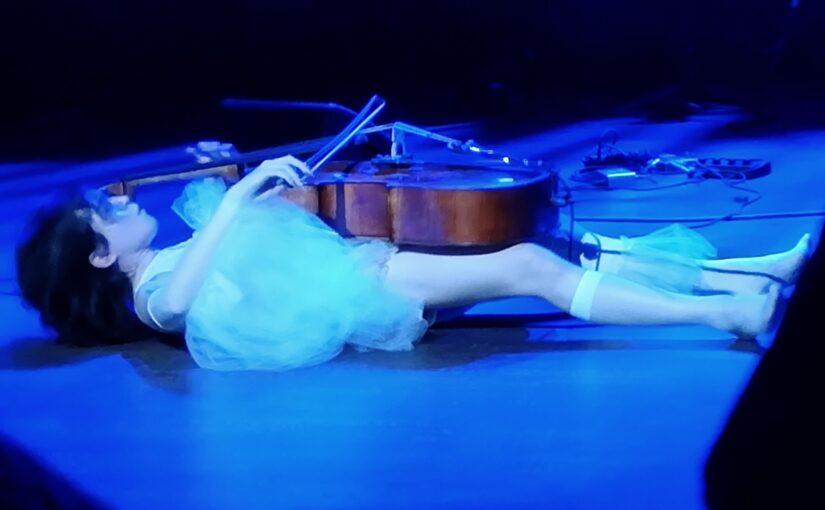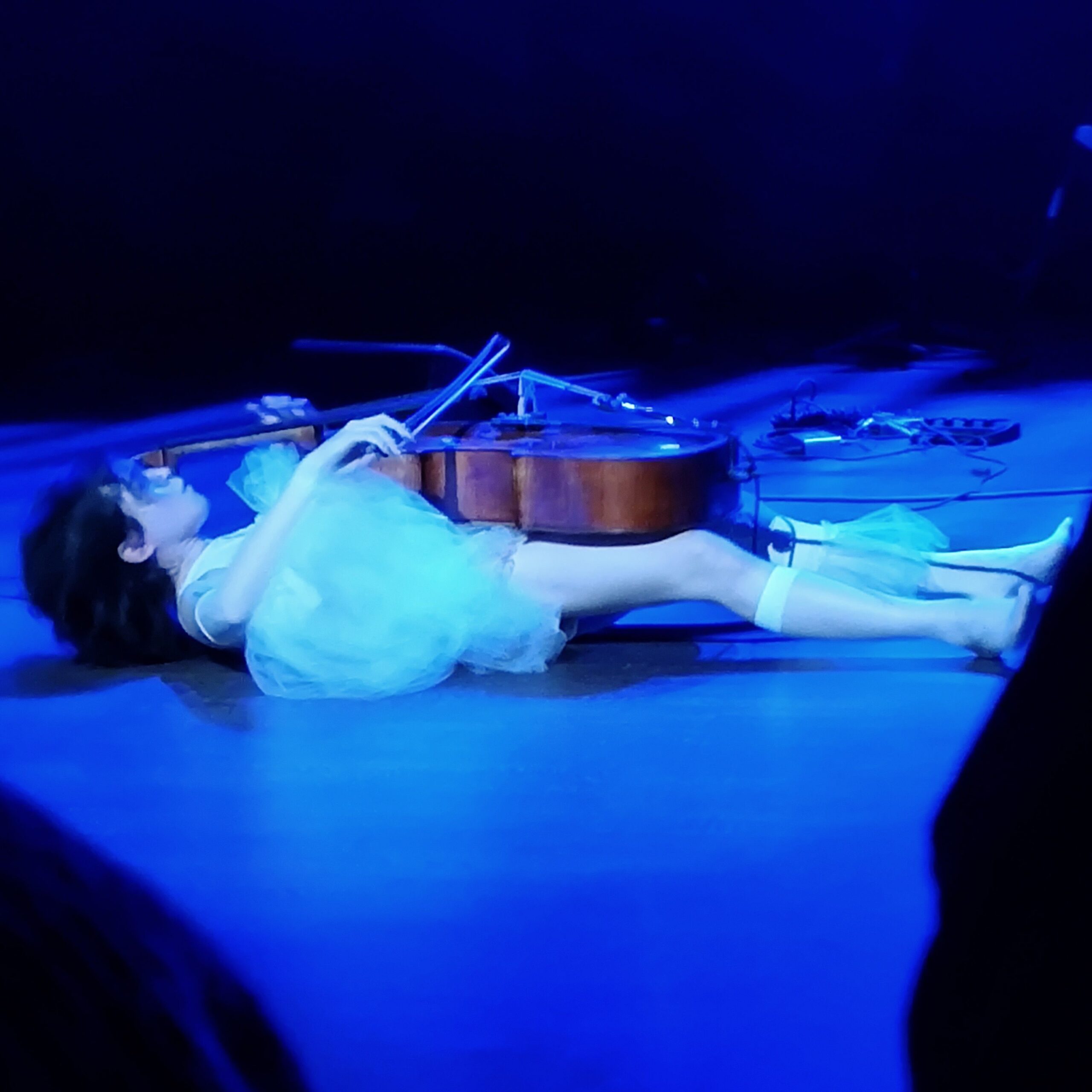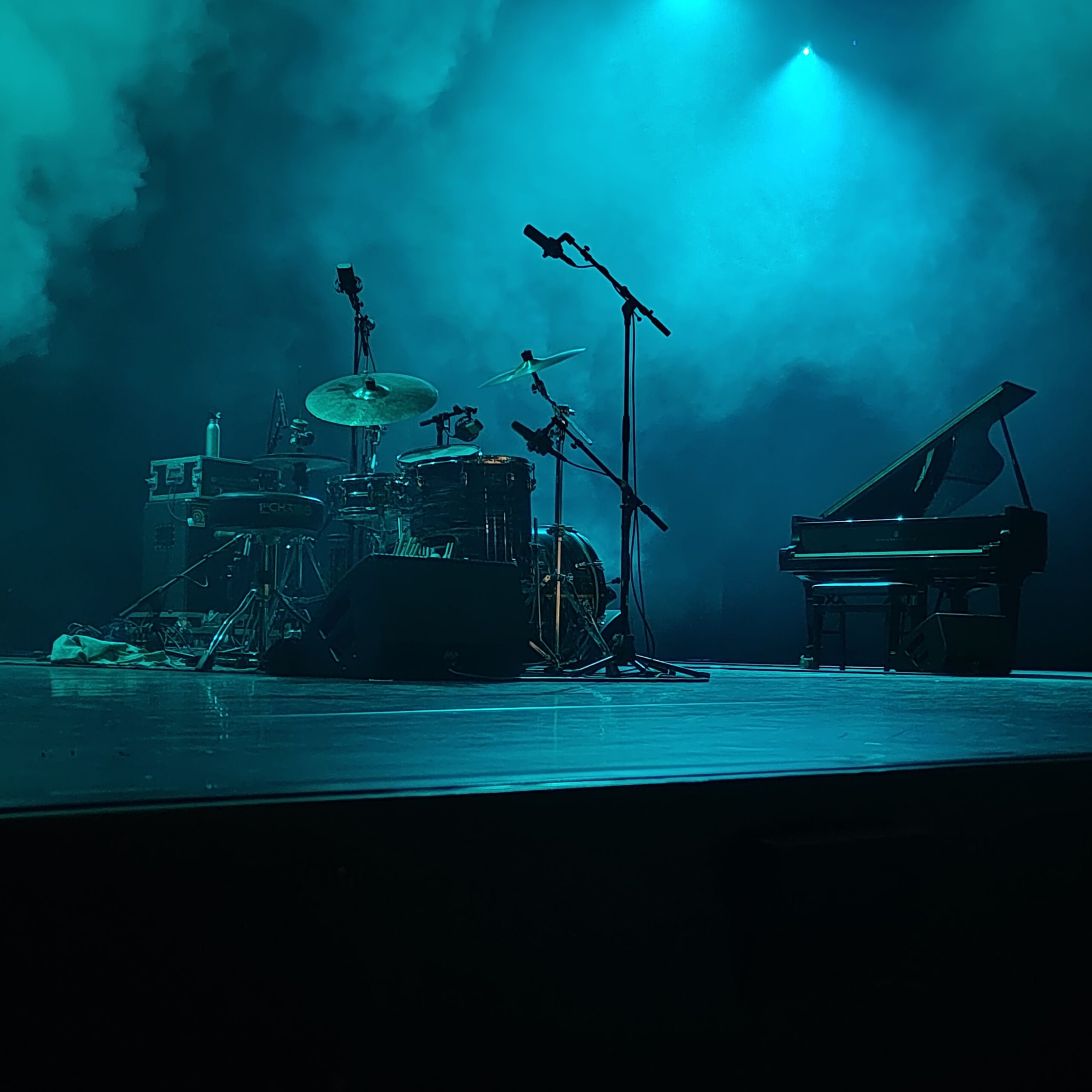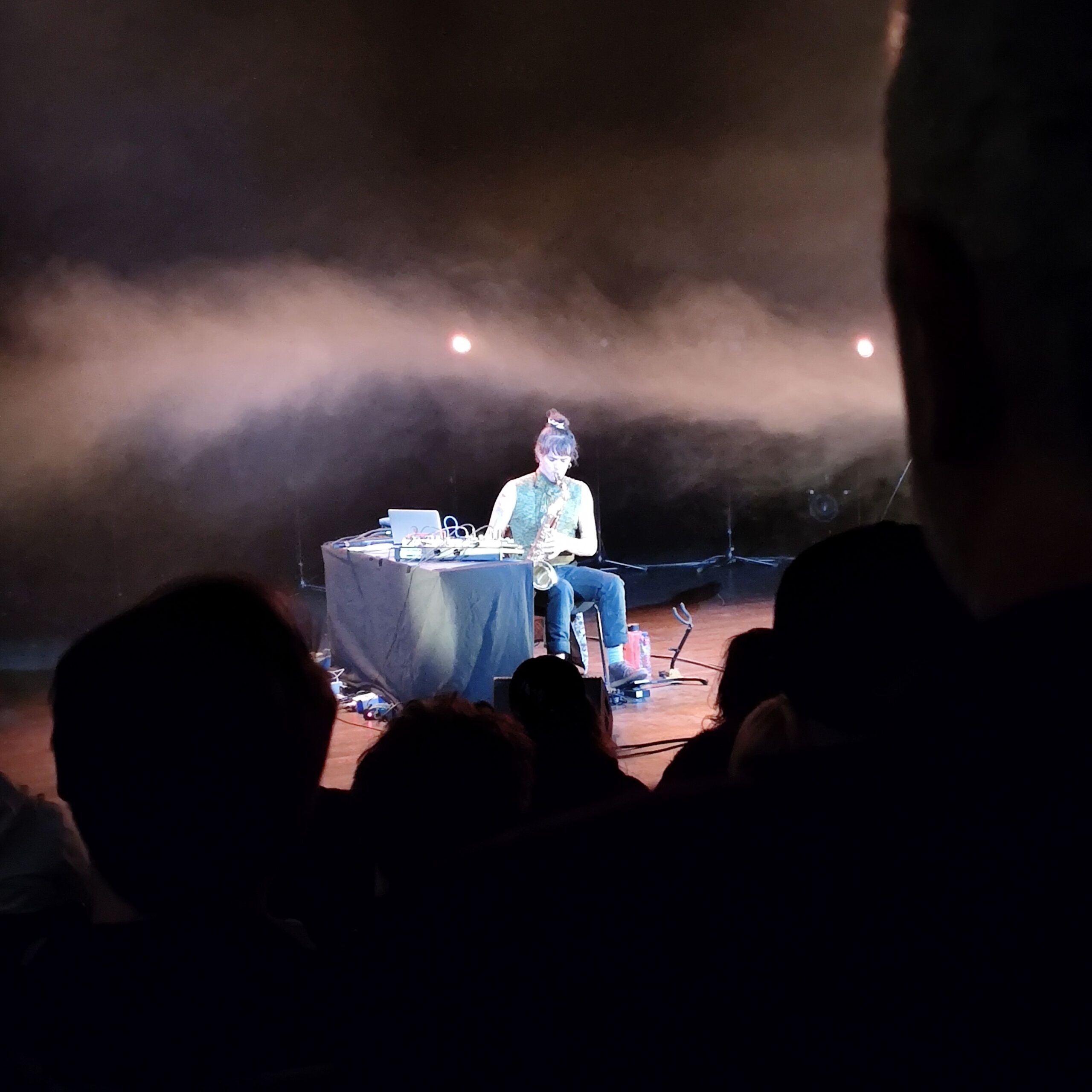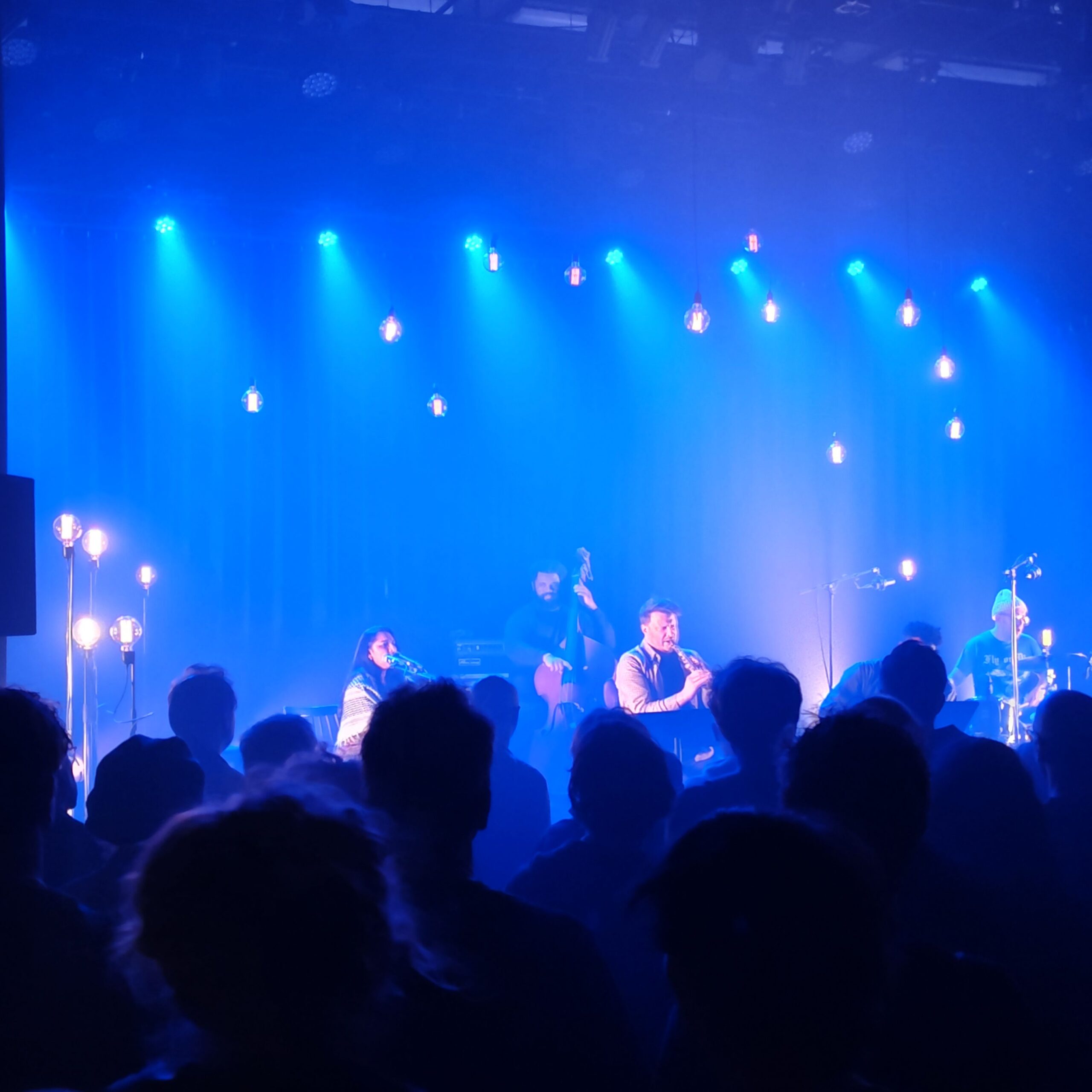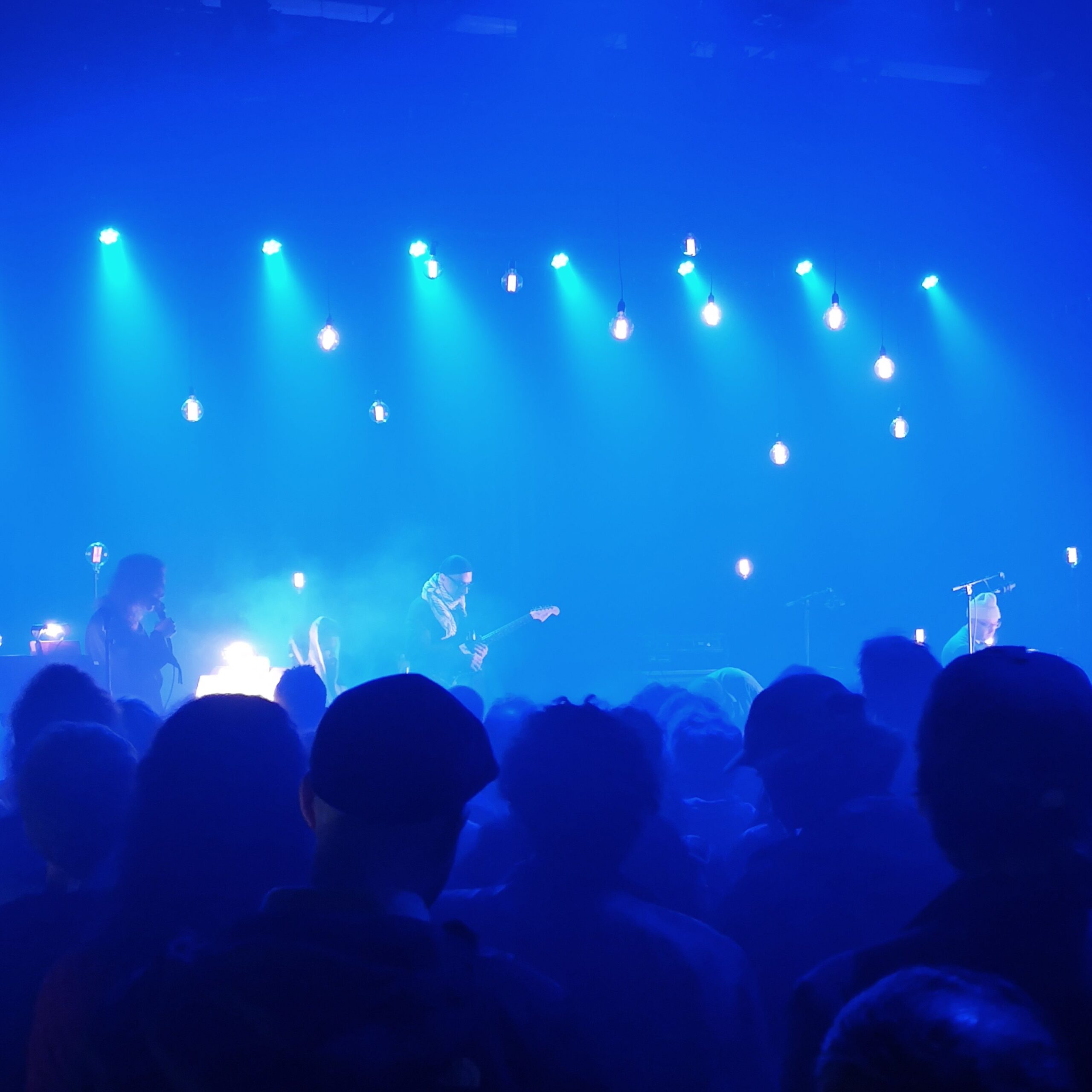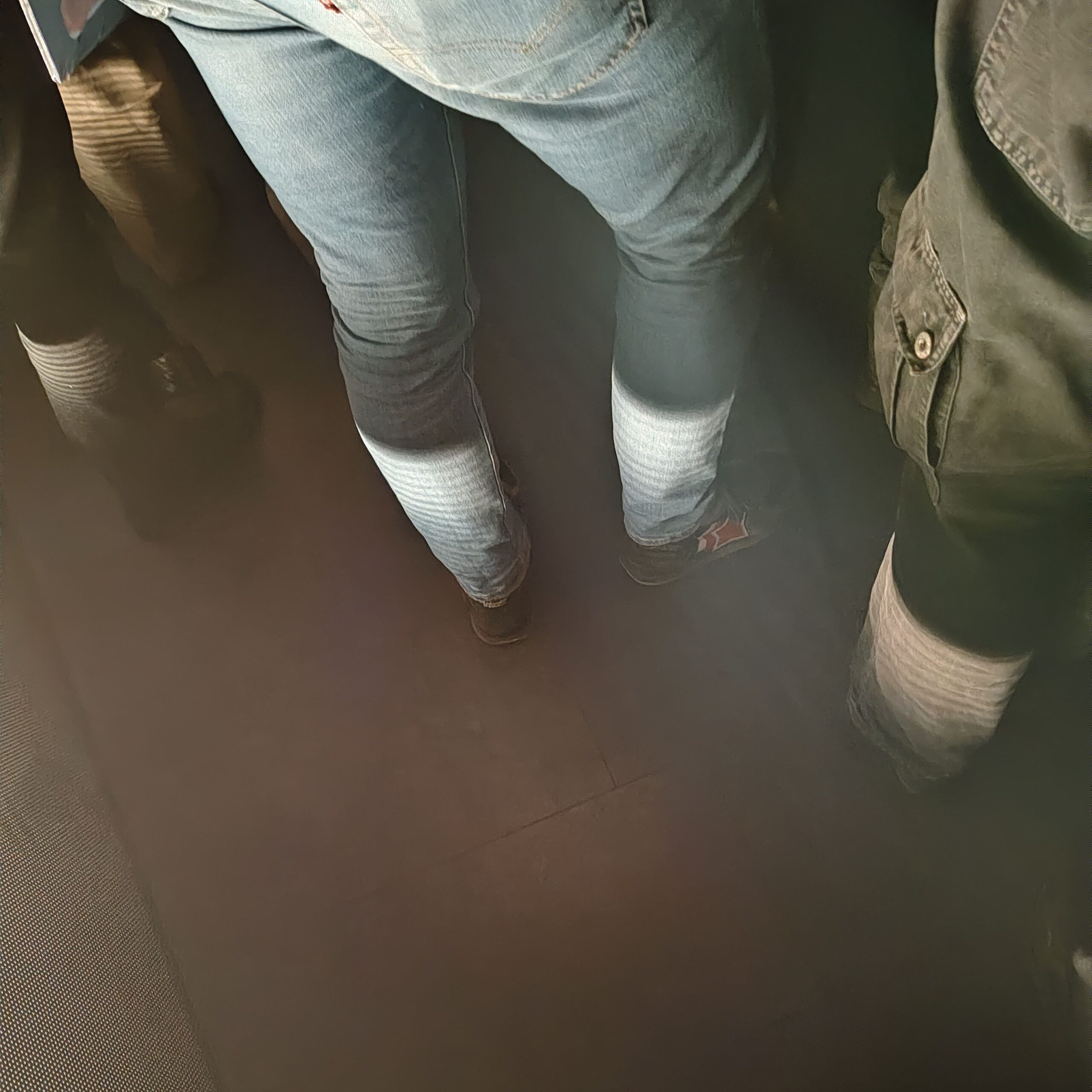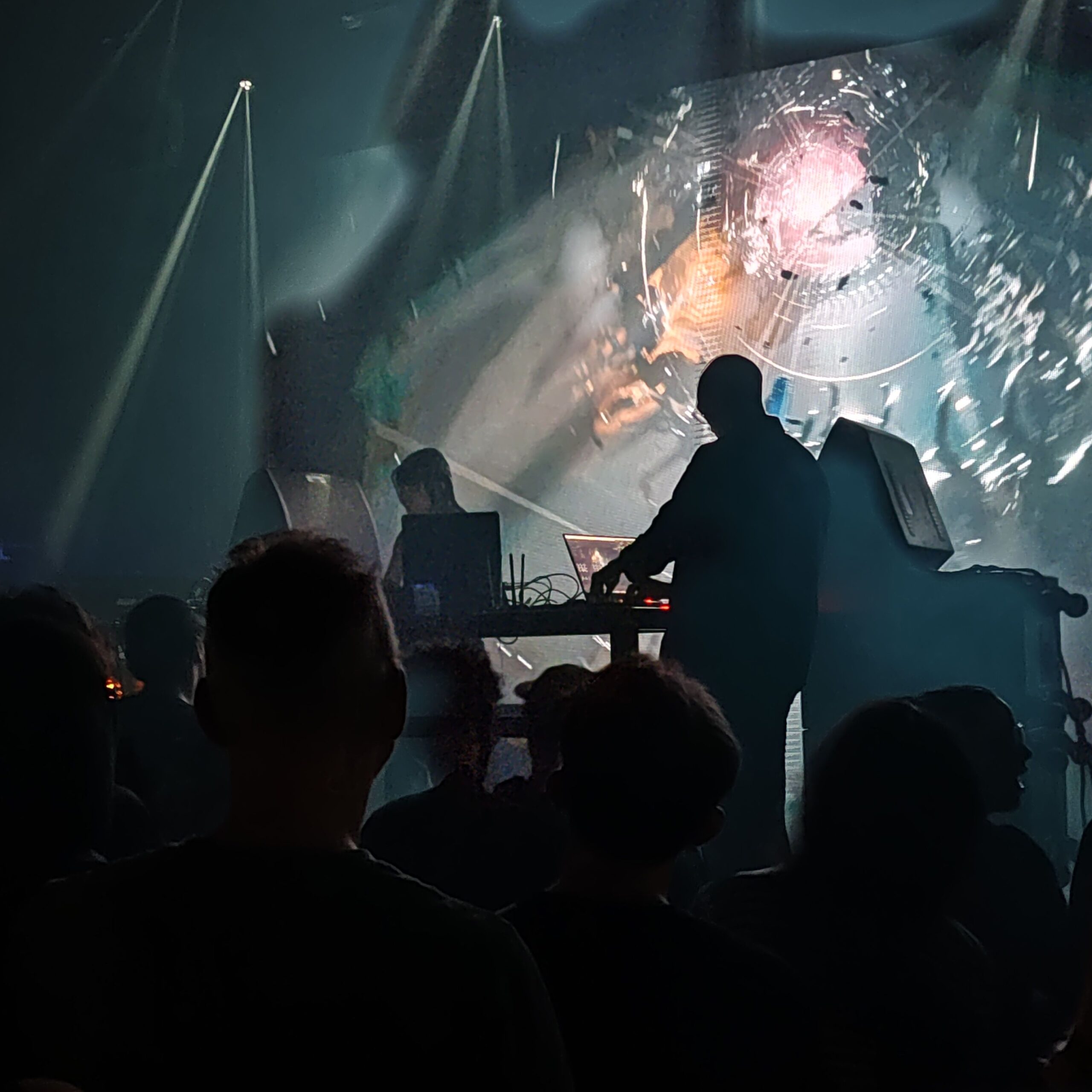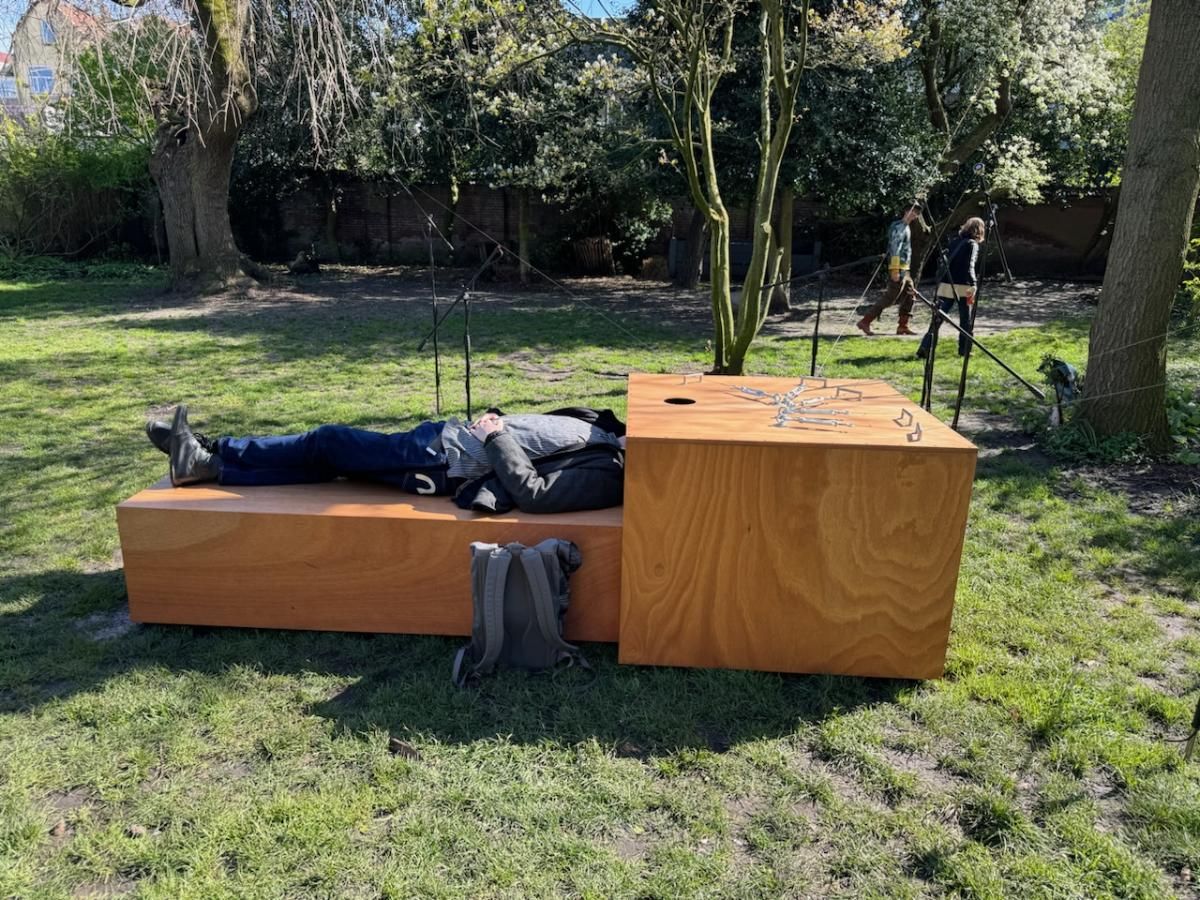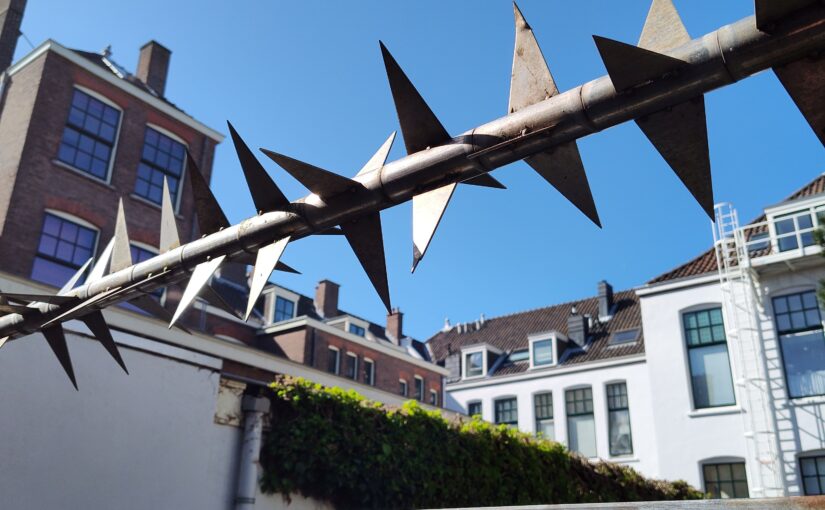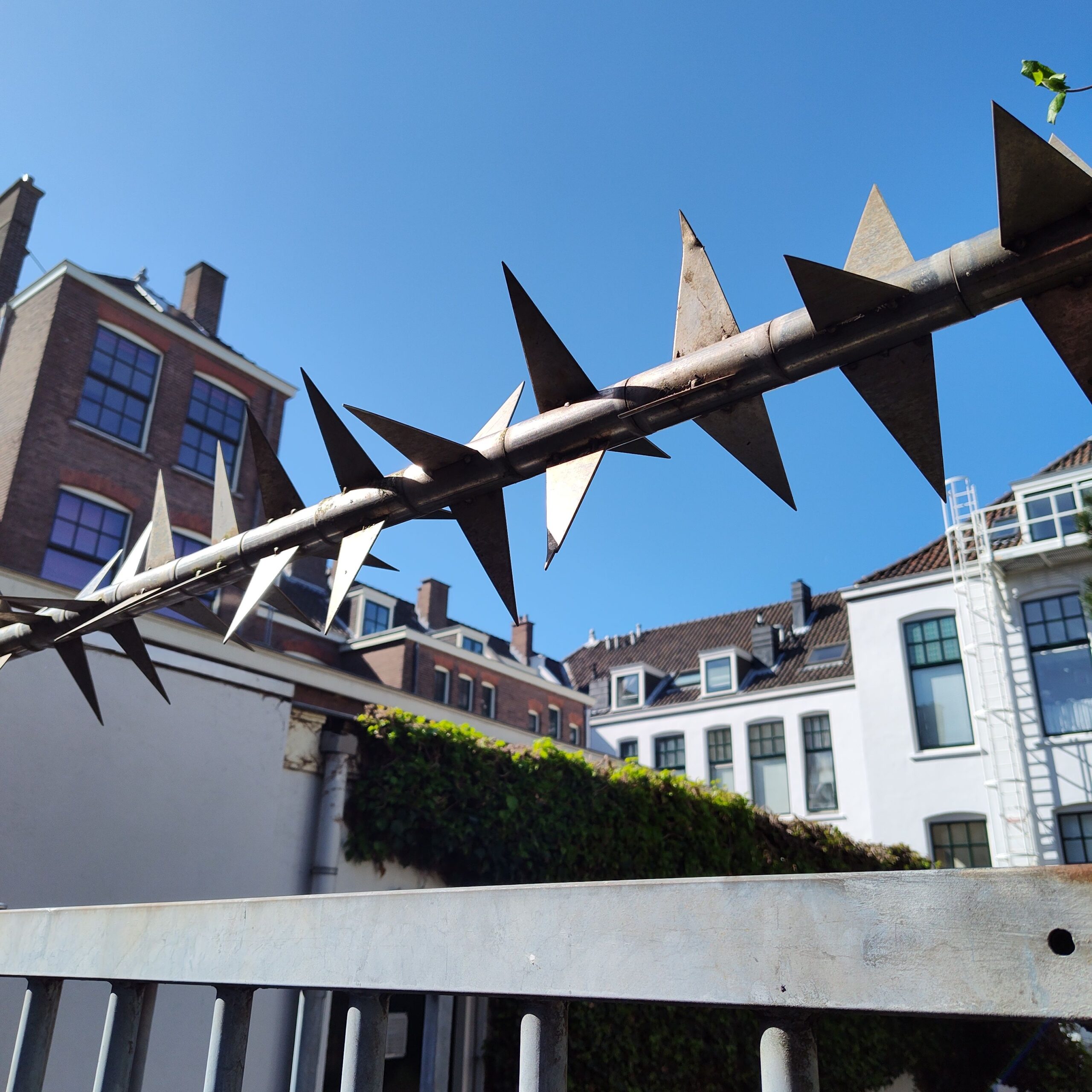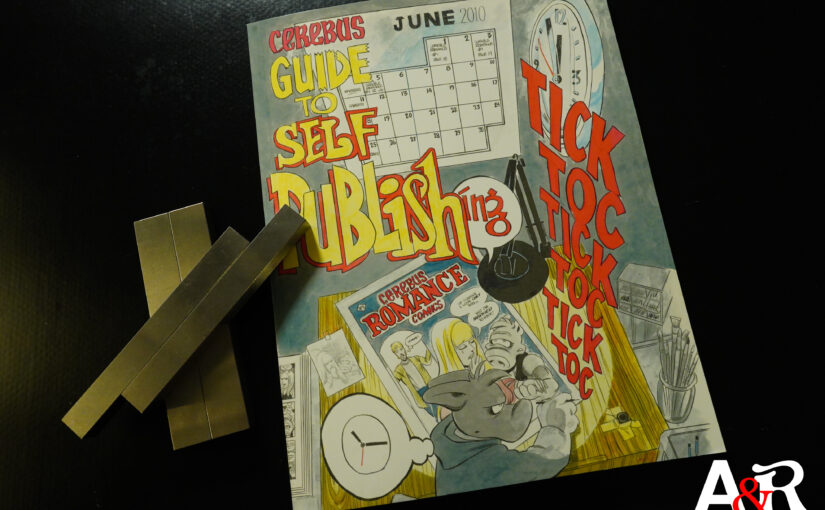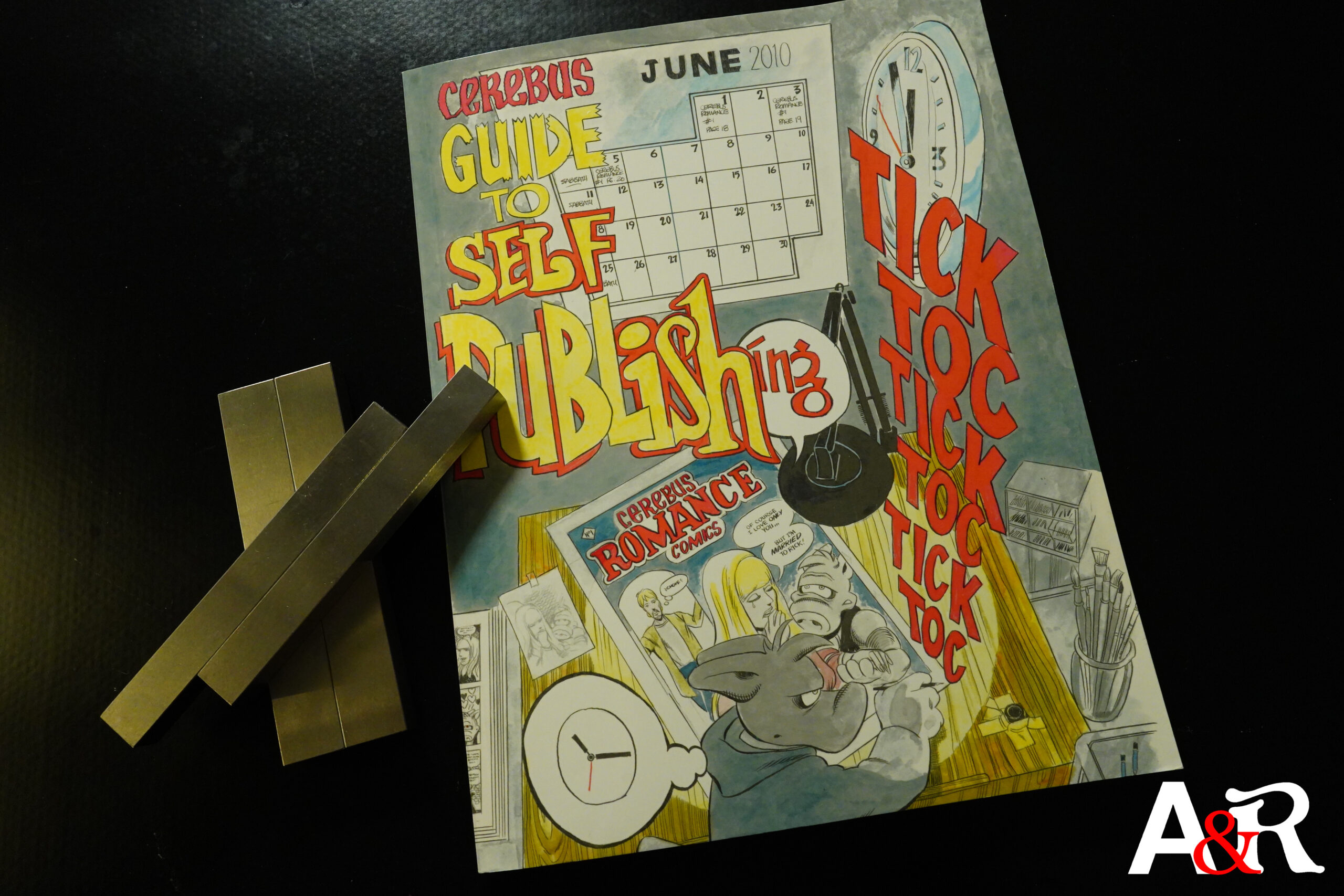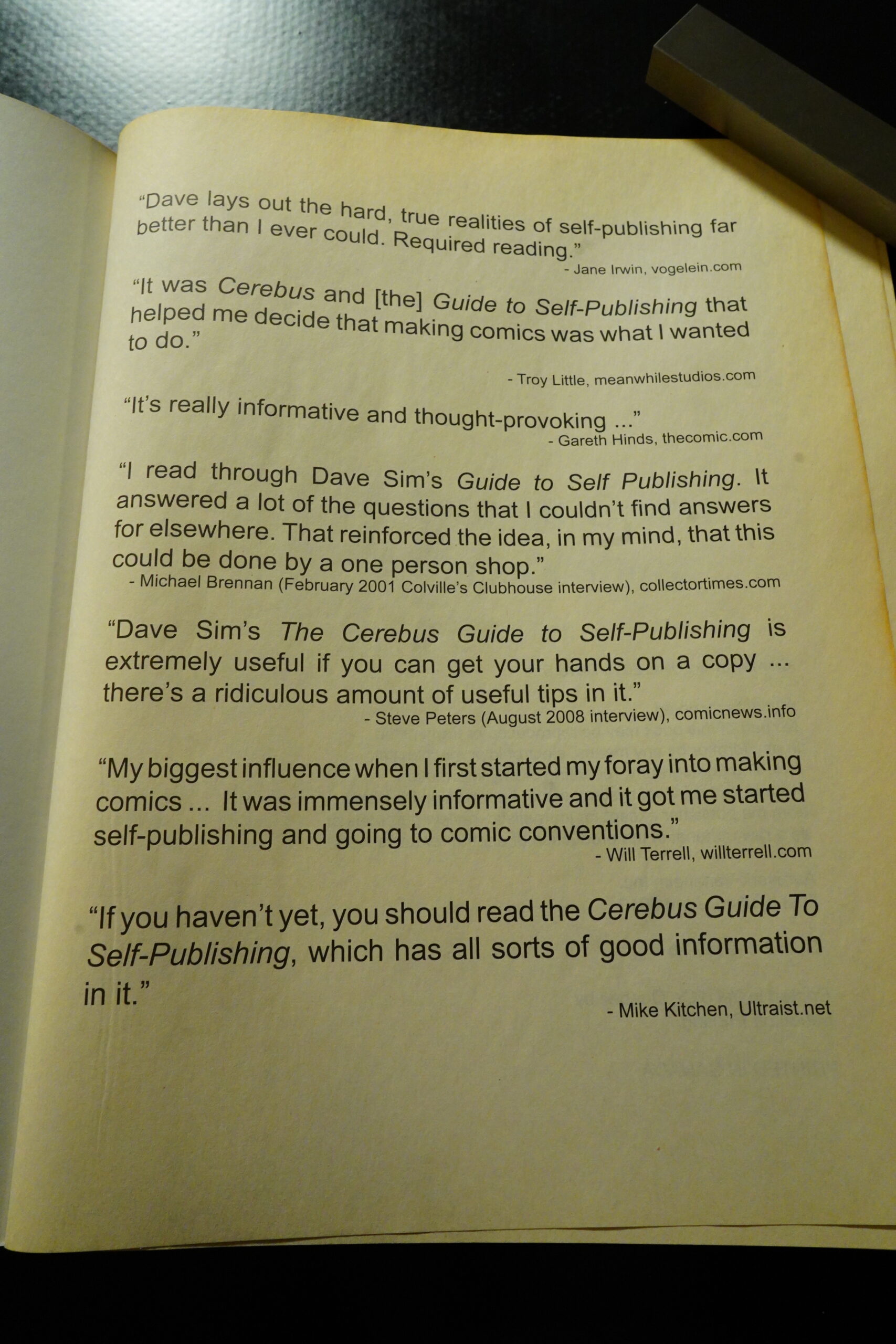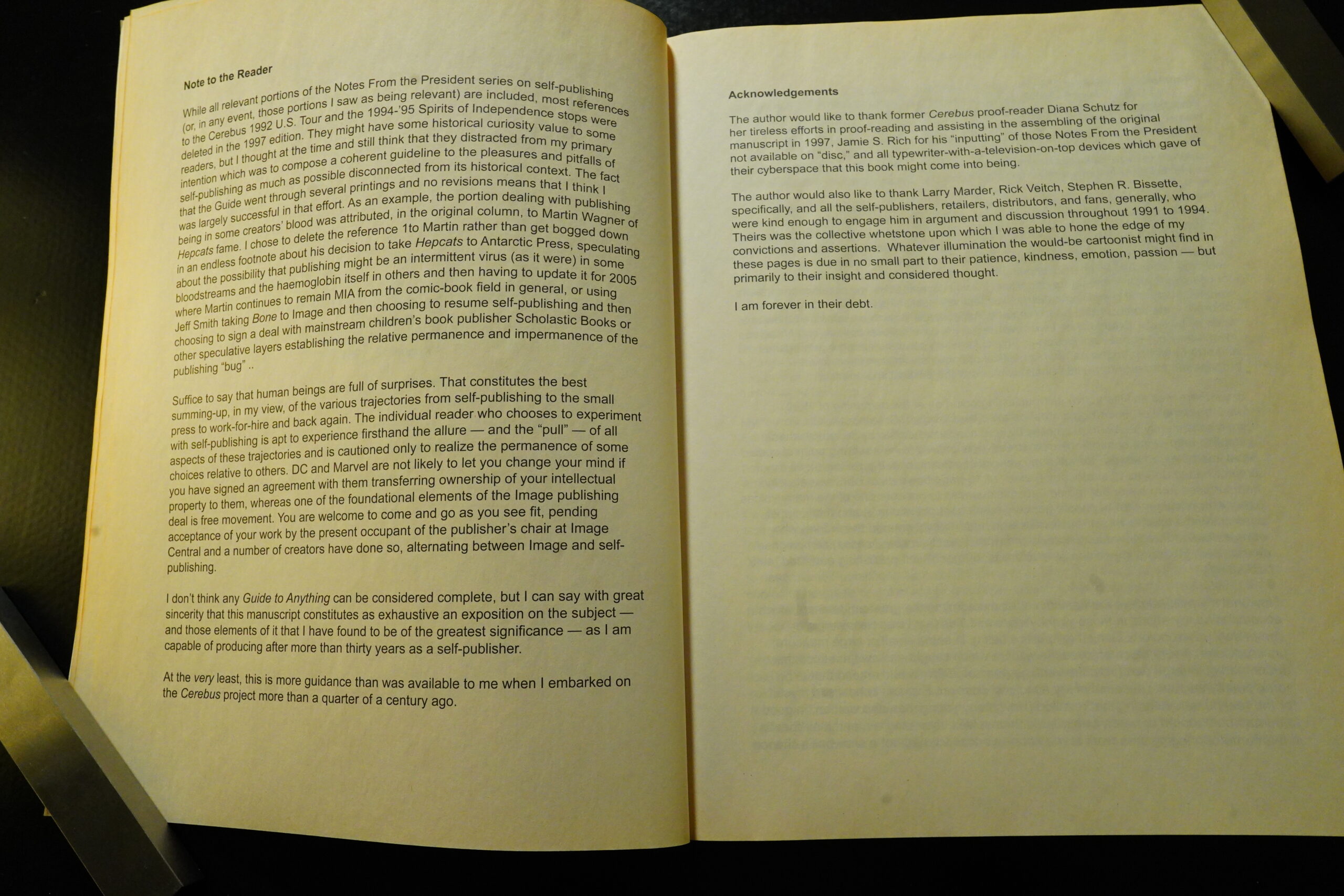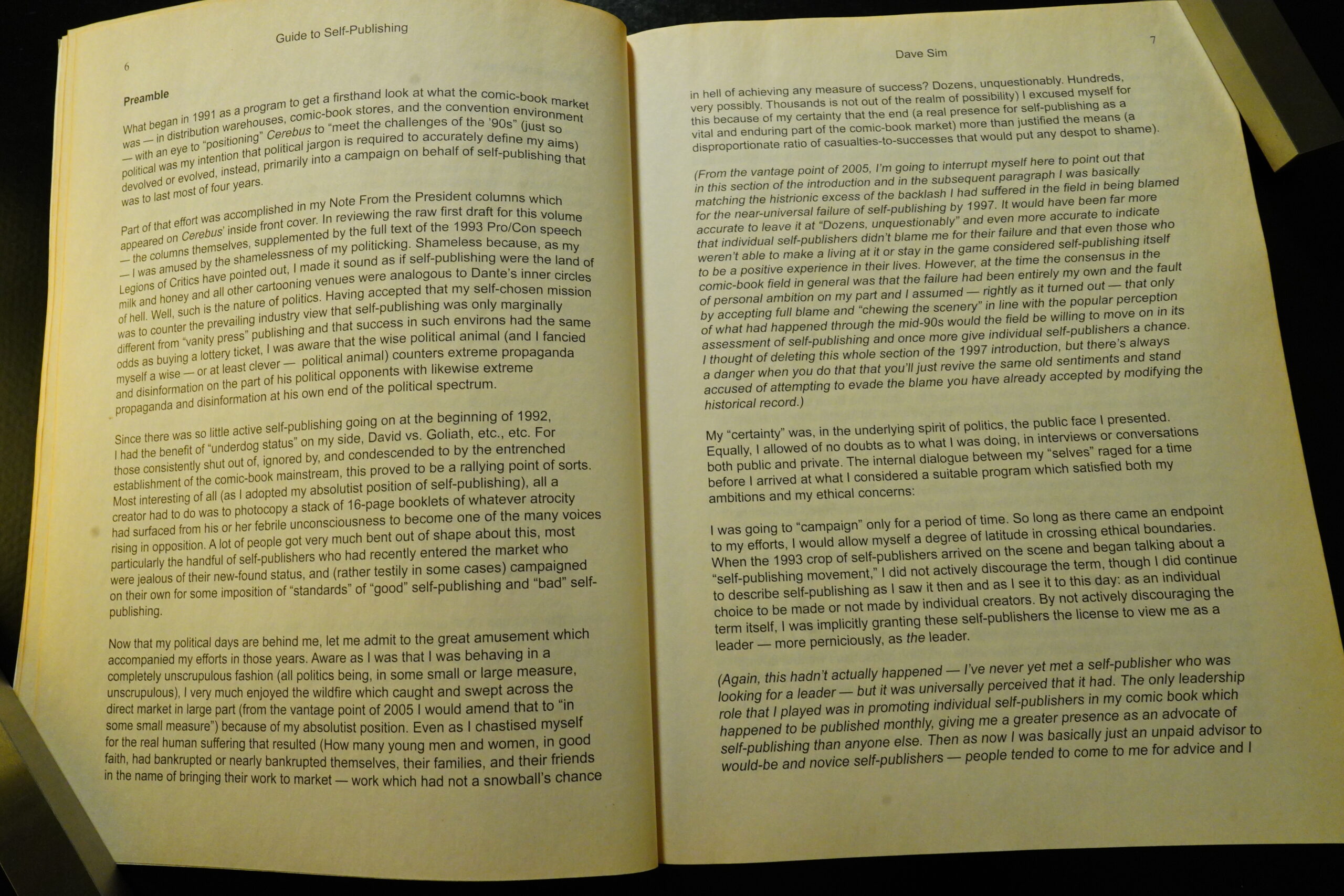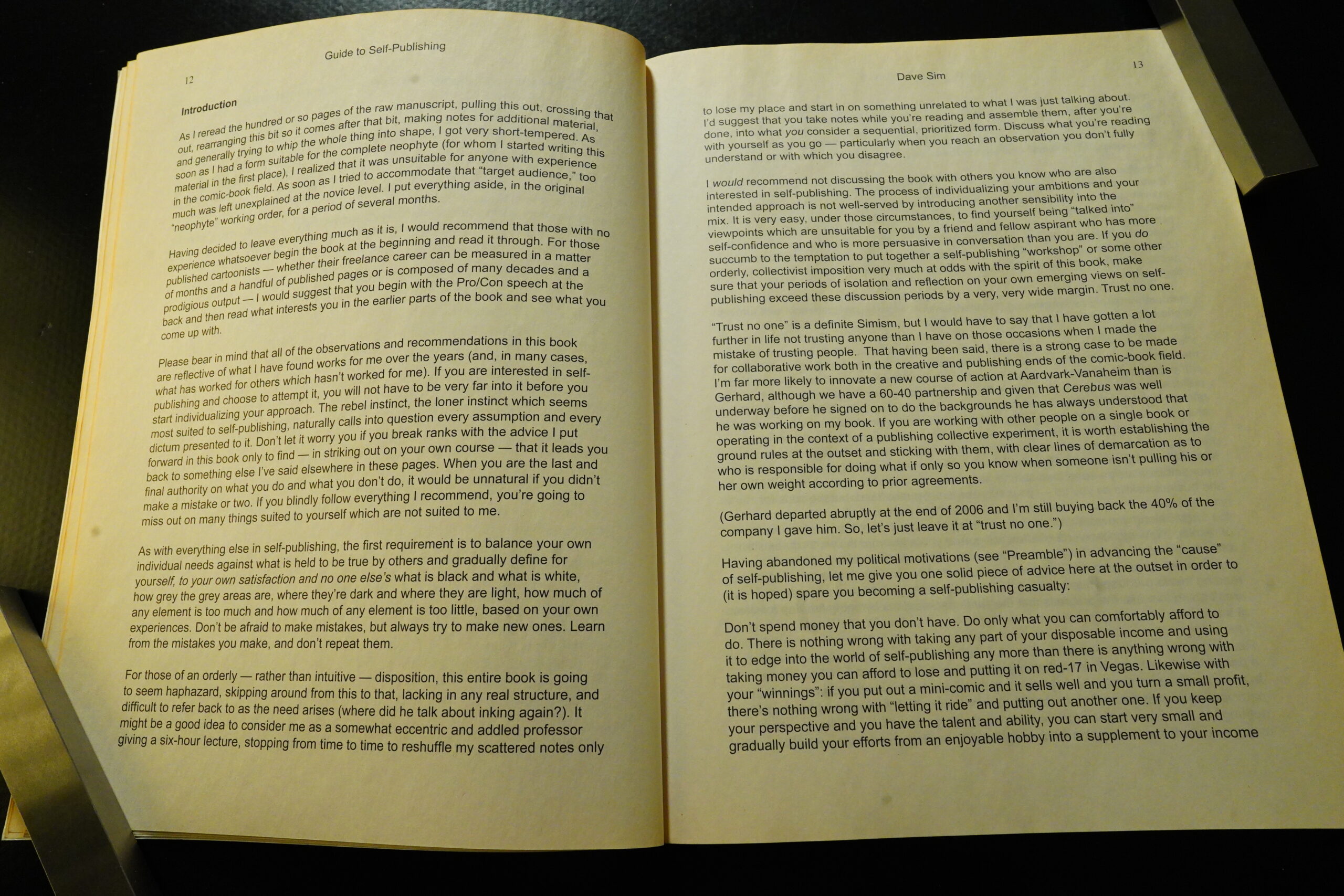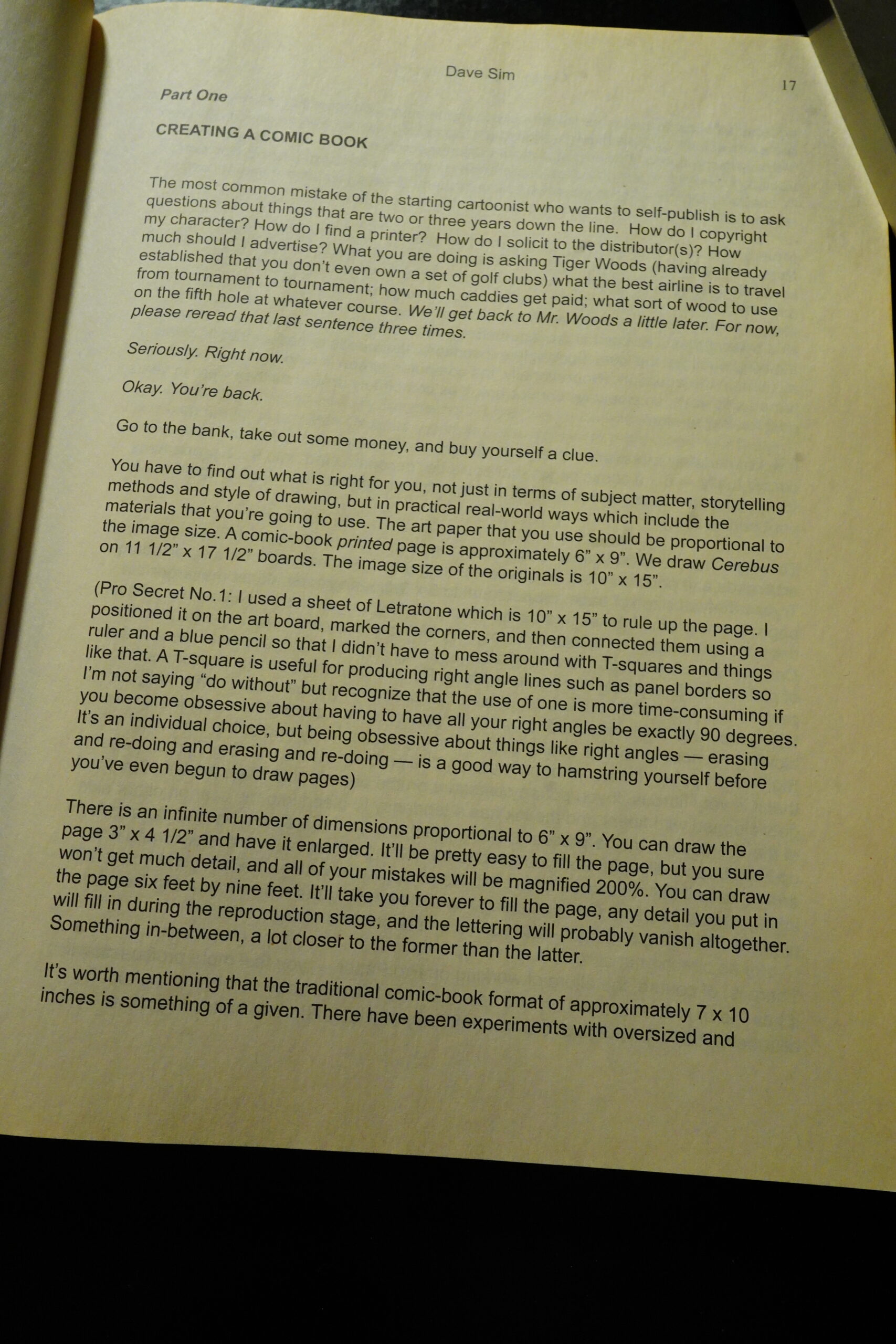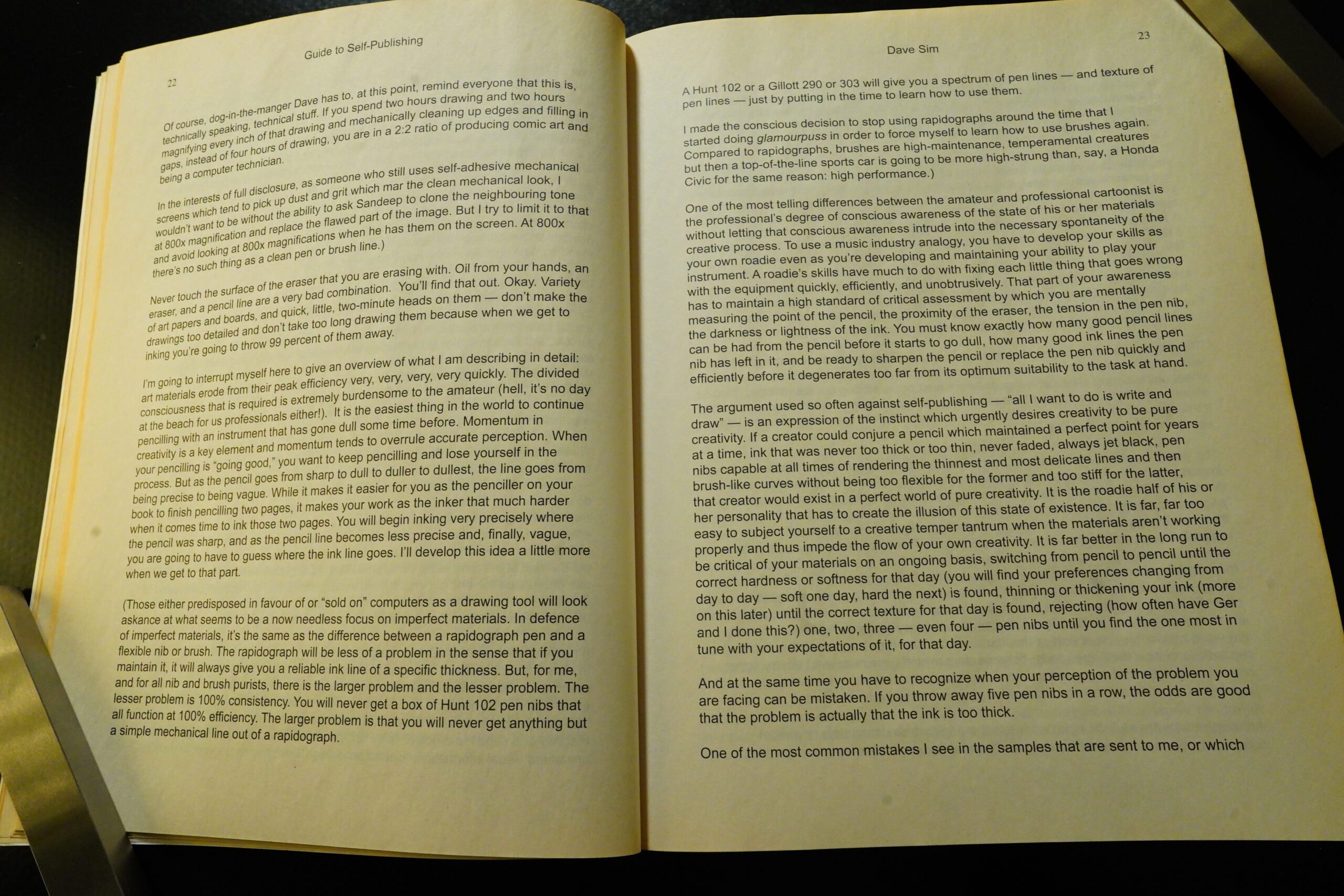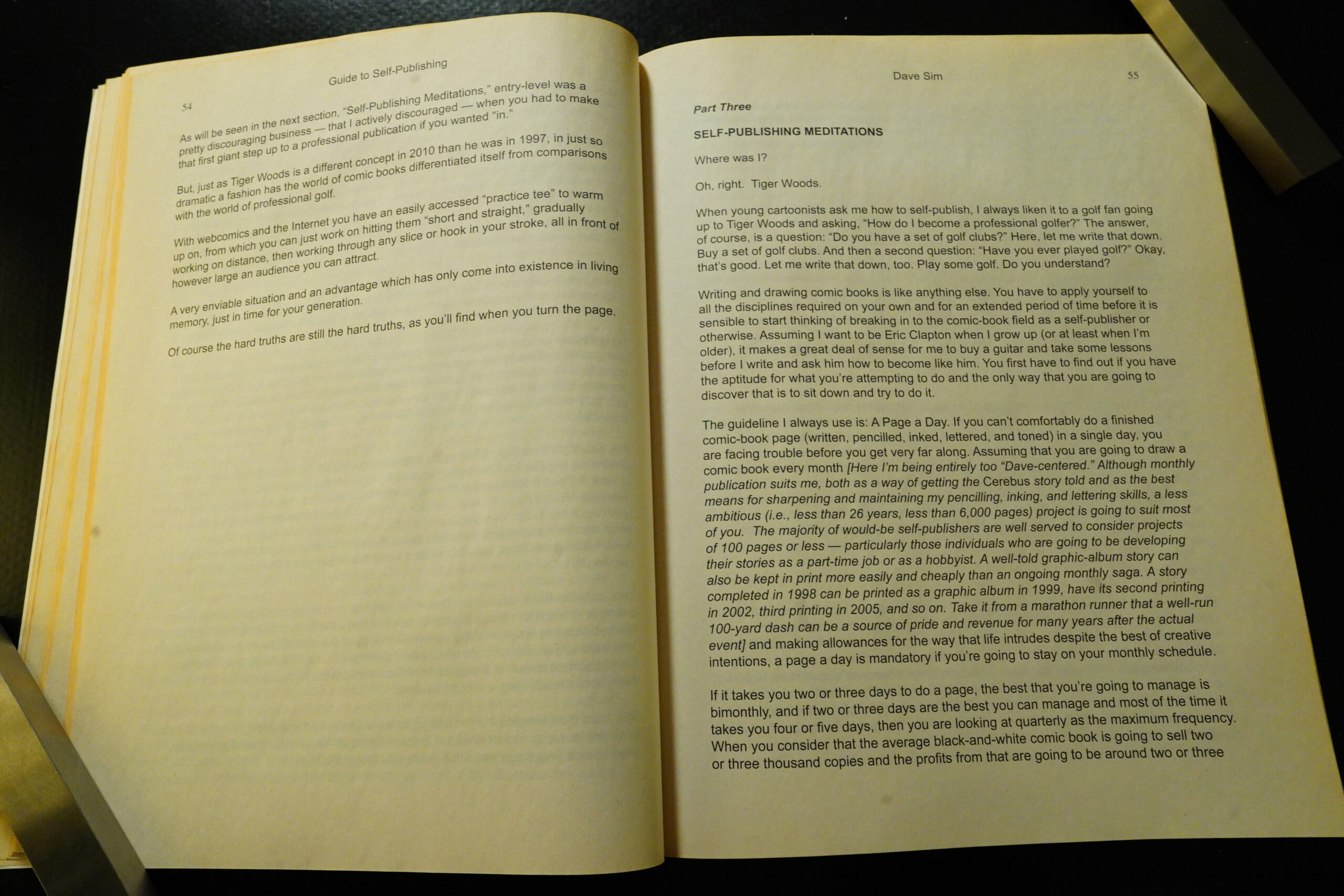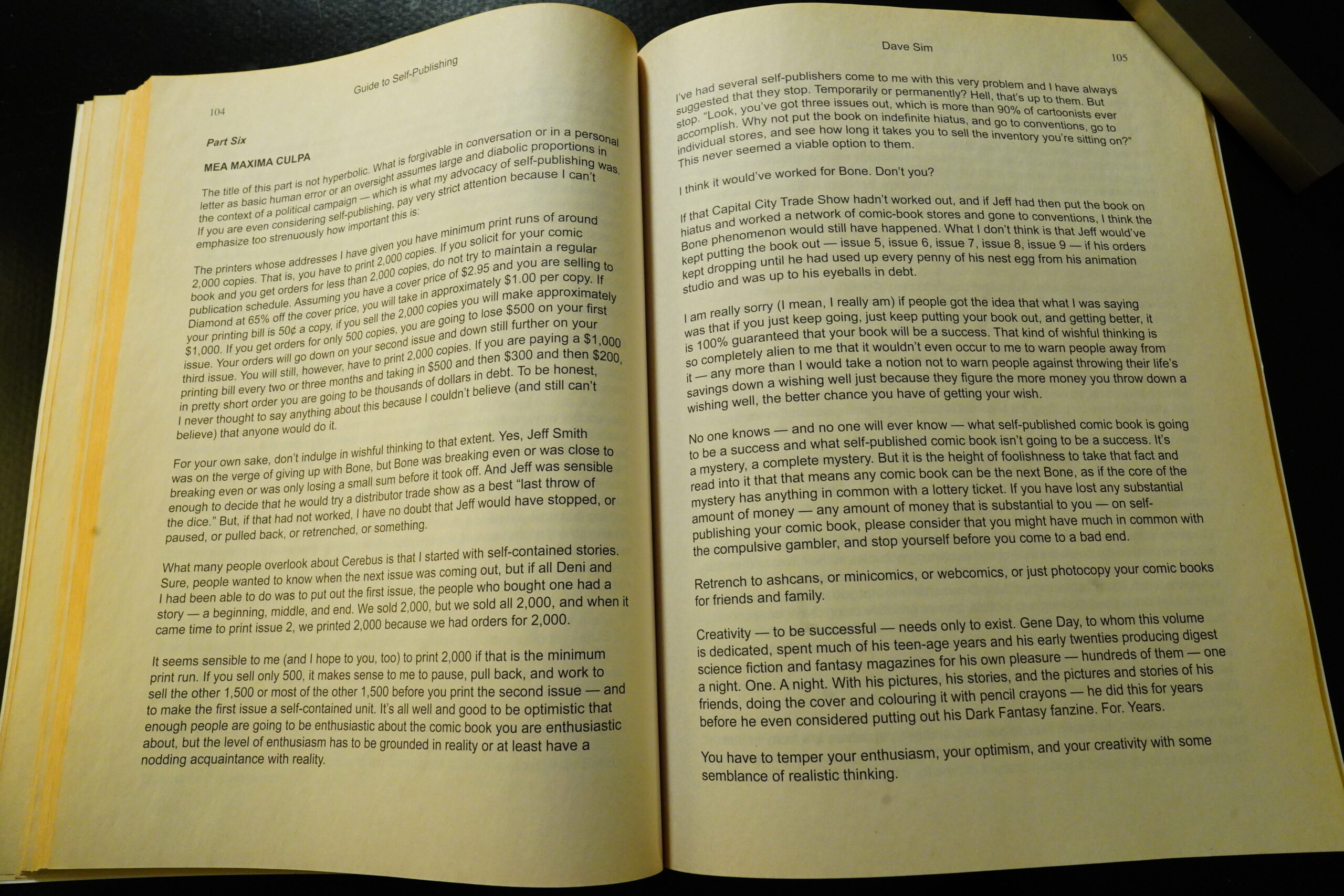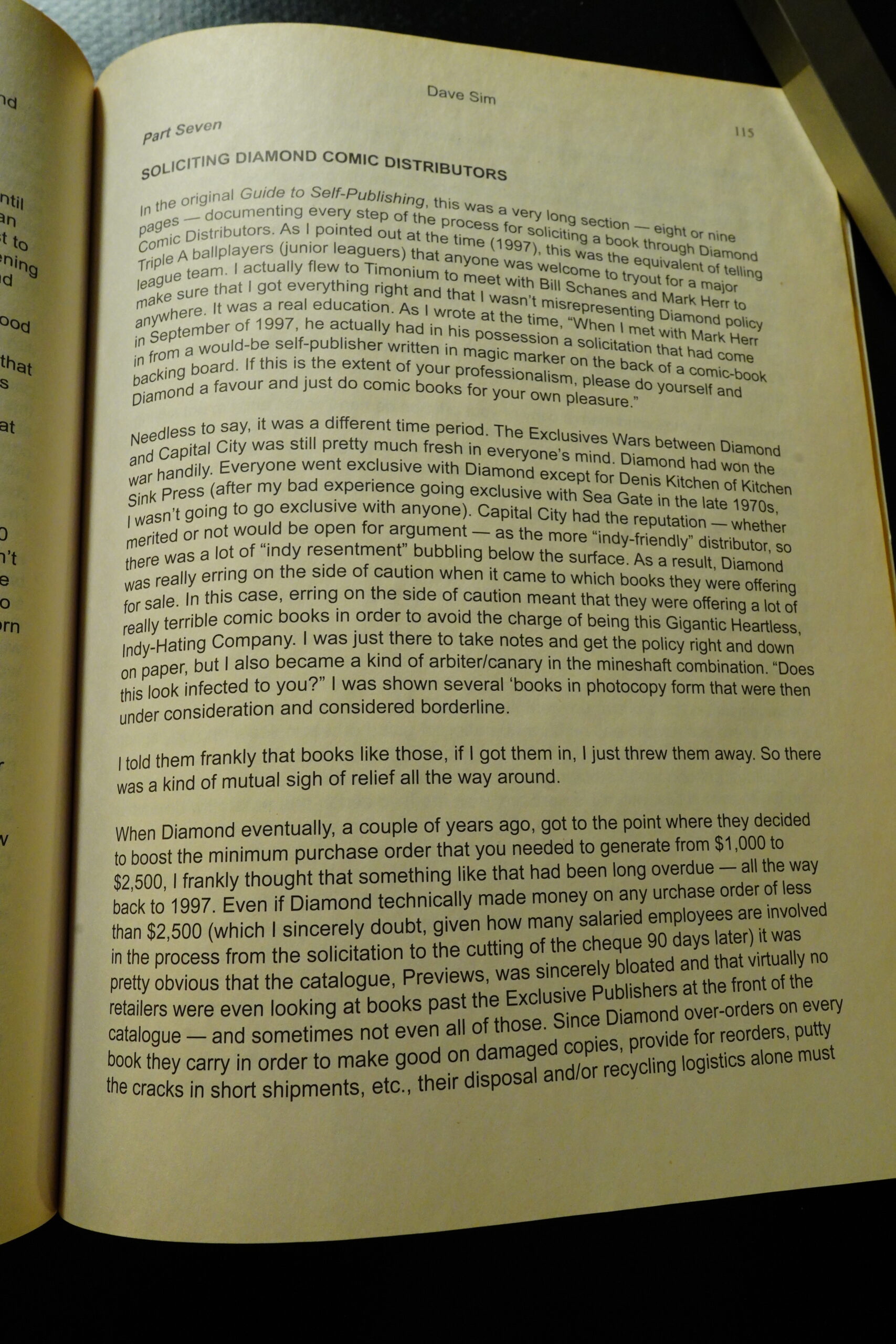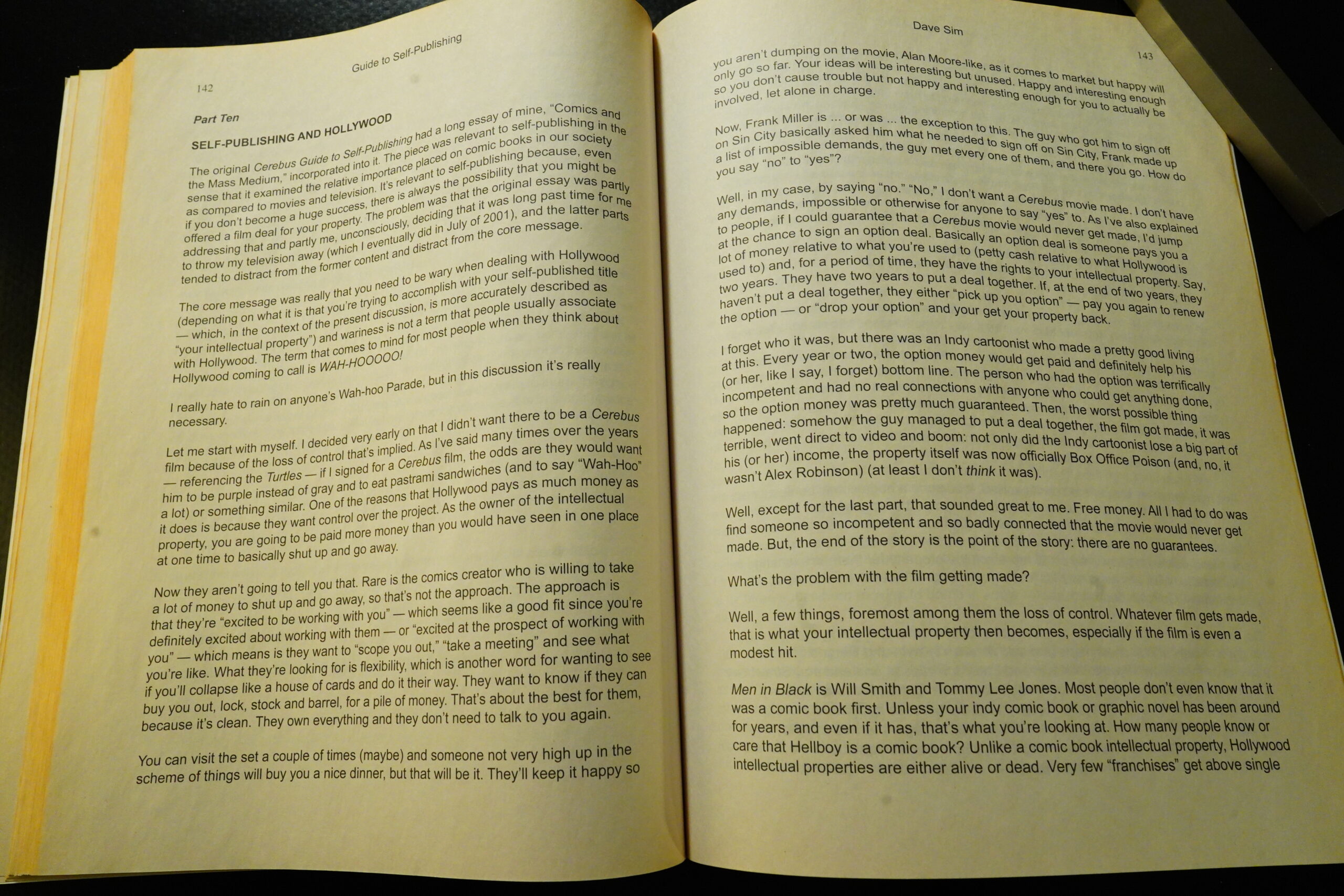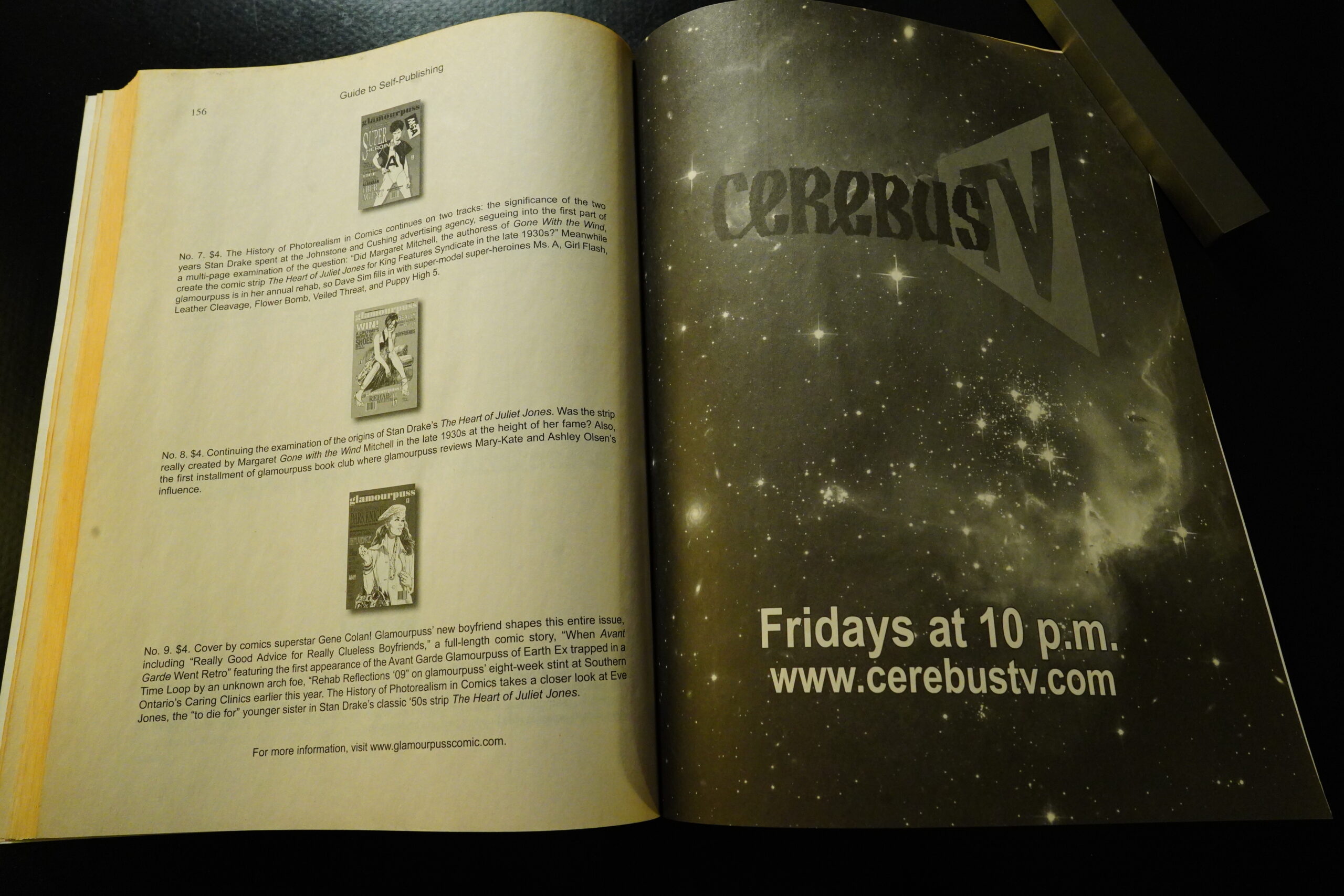Swords of Cerebus (1981) #1-6,
Swords of Cerebus Supplement to Swords of Cerebus Vol. 6 (1984) by Dave Sim and others
I hadn’t originally planned on covering Swords of Cerebus since I’ve already done Cerebus #1-25, and Swords of Cerebus reprints those. But what the hey — these are somewhat interesting in themselves.
Sim doesn’t exactly give a newbie-friendly introduction to Cerebus here, so I guess the intended audience are Cerebus fans. And it looks like it was successful — I’ve got the second printing (and I probably bought this copy back in 1982). Of note is how Sim talks about himself (in a jesting manner) as having several people in his head (the writer, the inker, the letterer etc) all trying to do as little work as possible. In the last third of Cerebus this sort of thing would really become a staple of the book itself: Cerebus constantly arguing with his various different personas in his own head.
And then we’re into the first issue. Sim mentions the “gross-out” on page two, and that we’d likely not see anything like that again in Cerebus again, and… er.. that wasn’t totally accurate, eh?
One thing that’s changed is that Sim has problems filling out an entire page of commentary — writing too little would rarely be one of his issues in later life.
Each issue of Swords of Cerebus has a short bonus strip, usually in collaboration with some other artist (here we see Marshall Rogers). This is fun, of course, and Sim would try to revisit the idea later with Cerebus Jam, but I remember it being slightly controversial: If you had the issues reprinted here, you had to buy the collection, too, to get the extra story! It’s an outrage! Or something! Of course these days in these “gotta hustle! gotta hustle!” times, it seems like a quaint objection to have…
On the back covers of these, you get the original covers.
Flipping through these books now, I’m mostly reminded of how nobody knew how to do a series like this back then. I mean, logistically — Cerebus is a long story, and new readers want to read the old issues. But you can’t keep all these issues in print, so you have to reprint them in more handy formats. And collecting four issues a pop? You get almost 100 pages, and with dense comics like these, that’s a satisfying read, really, even if these comics weren’t written with a collection in mind.
These days, super-hero comics seem to have settled on six issue story arcs written for the trade paperback, so the Swords of Cerebus format almost seems prescient. But non genre graphic novels tend more towards 200 page format these days… er… where was I going with this? Sorry, probably nowhere. I’m just saying that these reprints were pretty unusual at the time: When a floppy went out of print, it went out of print, and that was that.
Kim Thompson was an early Cerebus supporter, but that didn’t stop Sim from growing rather bitter towards the Comics Journal over the years.
I didn’t intend to read these comics now (since I’ve just read #151-300, and I’m burned out on Cerebus), but I find it almost impossible not to. These early books are just so charming, even if the artwork is all kinds of wonky.
Sim floated the idea of getting somebody to redraw the first 25 issues and issuing a new edition of the Cerebus the Barbarian collection a few years back, but of course nothing happened. It’d make sense in one way — when people are asked where to start with Cerebus, the tendency is to say “start with High Society because it starts out really rough”, but I’m not sure I agree. There’s a real charm to these pages.
If anything, the plots are a larger problem than the artwork. So many of these early stories don’t really go anywhere interesting… but on the other hand, all these little, mysterious things that happen here are what Sim would mine for the next 175 issues. So read on from issue 1 is what I’d say. (Except I wouldn’t really recommend anybody read Cerebus.)
The first Swords doesn’t preserve right/left ordering of the pages, but all subsequent issues do. And this gives Sim two pages to fill with commentaries, which is nice.
A slightly confusing publishing decision — including this in a volume that doesn’t feature either issue 20 or 21…
There’s so much going on in these issues! It almost makes me want to re-read the first 25 issues again… And Sim’s artwork takes enormous strides forward each issue.
Sim also uses Swords to reprint his Prince Valiant parody strip (that ran in the Comics Buyers Guide).
Barry Windsor Smith does not only the cover, but also the back cover on this one. Nice, eh?
In the final book, Sim introduces Gerhard and tells us that they’re launching a new bimonthy “title devoted to un-told stories from the Earth-pig’s past”. That would have been fun, but it never happened.
And we get a little Sim/Gerhard strip. It’s fun.
There was a printing mishap with the final book — they forgot to include issue #25, and Deni apologises. So there was a floppy included with the book. Awkward to say the least.
Heh heh.
Anyway. Good stuff.
This blog post is part of the Renegades and Aardvarks series.
